
Minister Ata Reiterates FG's Commitment To Delivering Affordable Housing ...
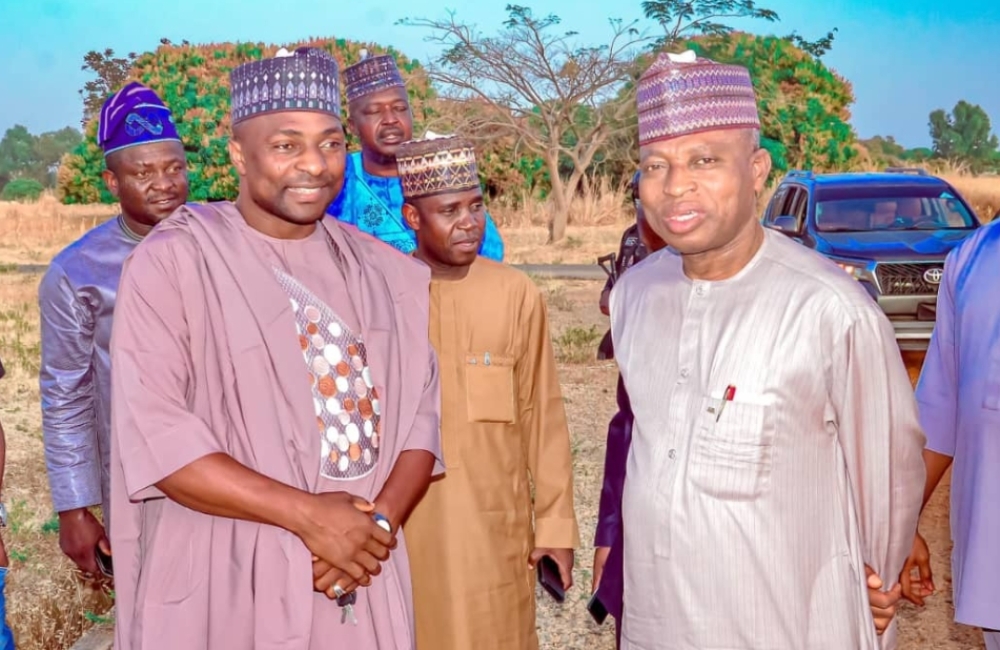
Minister Ata reiterates FG's Commitment to Delivering Affordable Housing
* says housing remains a top priority of President Bola Ahmed Tinubu 's Renewed Hope Administration
Minister of State for Housing and Urban Development, Rt Hon. Yusuf Abdullahi Ata has reiterated the commitment of the Federal Government to delivering on its promise of providing affordable housing for Nigerians, saying that housing remains a top priority.
Ata spoke during an assessment visit to the National Housing Project (NHP) Estate located in Laminga, Jos East local government area, Plateau State.
Responding to the request by the Jos east local government for the bulk purchase of some housing units in the estate, Minister Ata said " the Ministry will offer the houses to the local government on current face value, taking in to consideration of some observed delapitation. We will review the initial pricing and address it accordingly"
He also reassured the commitment of the Ministry to meeting the housing needs of Nigerians by increasing housing availability and affordability, adding that the administration of President Bola Ahmed Tinubu, GCFR, is working tirelessly to provide housing solutions in the country, through its Renewed Hope Housing Programme.
Earlier, the Federal Controller of Housing, Plateau State, Bldr Emmanuel Attah conveyed to the minister the interest of the Jos east local government to bulk- purchase some housing units in the estate and their request for a down review of the initial pricing to enable them take care of the repairs and defray the cost of maintenance for the dilapidated portions in some houses.
The NHP Housing Estate in Laminga, Jos Plateau State is expected to provide much-needed housing units, boosting the local economy and improving living standards.
The visit by the Hon Minister underscores the government's focus on addressing Nigeria's housing deficit as well as promoting socio - economic well-being of Nigerians
Housing Ministry, ICPC Begin Joint Nationwide Tracking Of Constituency Projects...
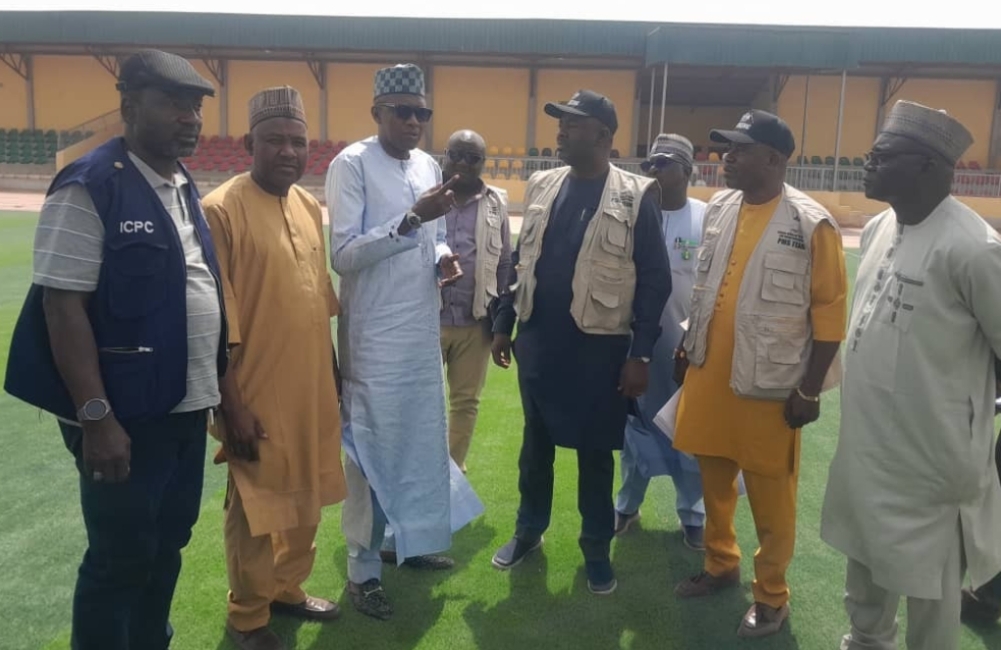
Housing Ministry, ICPC Begin Joint Nationwide Tracking of Constituency Projects
* exercise, a clear warning to non-performing, defaulting contractors - Belgore
The Federal Ministry of Housing and Urban Development, in collaboration with the Independent Corrupt Practices and Other Related Offences Commission (ICPC), has commenced a joint nationwide verification and tracking of constituency and zonal intervention projects executed by the Ministry across the country.
The exercise is aimed at ensuring that all projects are delivered strictly in accordance with approved specifications, uphold principles of transparency and probity, and guarantee value for money for the Nigerian people.
The Ministry, through its Special Projects Unit, supervises the execution of Federal Government constituency and zonal intervention projects, while the ICPC serves as the statutory agency responsible for enforcing compliance, due diligence, and integrity in budget implementation and public expenditure.
The joint verification exercise was officially flagged off in Kano, Wednesday, 28 January 2026, and is being conducted simultaneously in all states where the projects were implemented. Teams comprising officials of both institutions have been deployed nationwide to carry out on-the-spot inspection, verification, and assessment of project status and quality.
Speaking at the flag-off ceremony, the Permanent Secretary of the Ministry, Dr. Shuaib Belgore, represented by the Director, Special Projects Unit, Olatunde Ajayi, stated that the initiative was designed to evaluate the impact of constituency projects and ensure that Nigerians derive the intended socio-economic benefits.
“This joint verification and tracking exercise with the ICPC is aimed at evaluating the impact of these projects and ensuring that they are executed to standard for the benefit of the people,” Belgore said.
He emphasized that the exercise underscores the Ministry’s unwavering commitment to accountability, transparency, and responsible stewardship of public resources, while also serving as a clear signal to contractors.
“The Ministry, in collaboration with relevant oversight agencies, will not hesitate to invite contractors for corrective action where deficiencies are identified, or demand refunds to government coffers where projects have clearly failed to meet contractual obligations,” he added.
According to him, reports generated from the exercise will support evidence-based decision-making, assist the Ministry in assessing the relevance and level of implementation of projects, and highlight areas requiring adjustment to strengthen future planning and interventions.
Also speaking, the ICPC Head of Constituency Projects Tracking, Bello Idris Bakori noted that the Commission’s participation reflects its mandate to prevent corruption through proactive monitoring of public projects.
He explained that the joint effort is intended to deter sharp practices, promote transparency in project execution, and ensure that public funds allocated to constituency interventions translate into tangible development outcomes for citizens.
Bakori assured that findings from the exercise would be thoroughly documented and followed up in line with extant laws and procedures to safeguard public interest.
Some of the projects visited by the joint team during the flag off of the tracking exercise in Kano include; provision and installation of solar streetlights lights in GGSS Kwa, Bichii local government and Rimingado local government, and construction of sporting facility, indoor complex, football fitch and pavillion in Gwarzo town.
Others are construction of Badume - Kyauta road in Dawakin Tofa - Bichi local governments. The tracking exercise of projects executed in Kano state continues tomorrow.
Nigeria Showcases Housing Reform Agenda At Real Estate Future Forum In Riyadh, Saudi ...
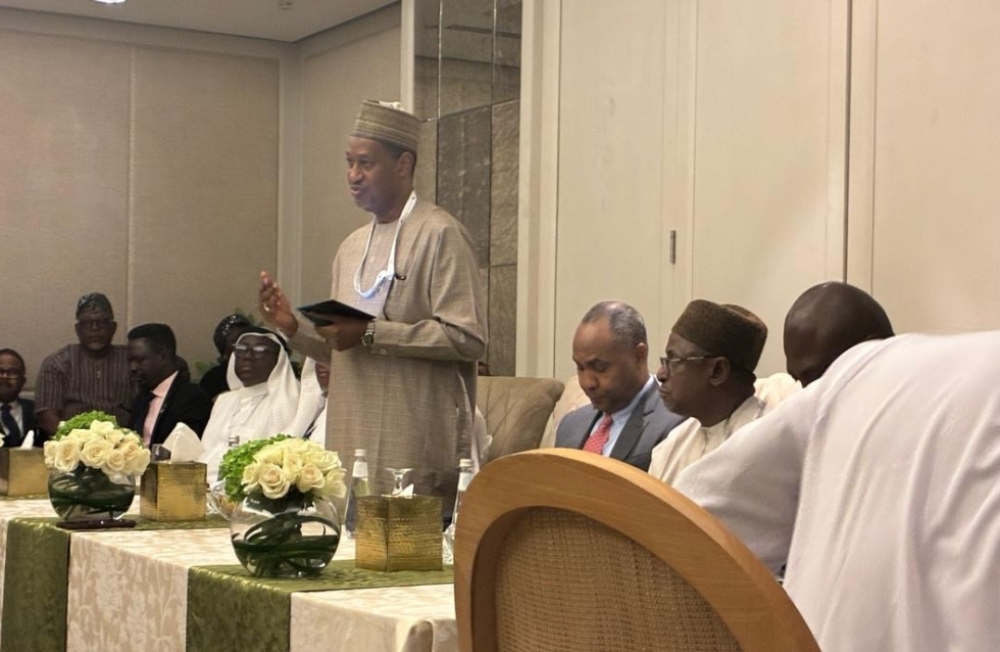
Nigeria Showcases Housing Reform Agenda at Real Estate Future Forum in Riyadh, Saudi Arabia;
Nigeria has presented its bold housing reform strategy at the Real Estate Future Forum (RFF) 2026 in Riyadh, with the Honourable Minister of Housing and Urban Development, Arc Ahmed Musa Dangiwa, FNIA, speaking on the panel “Building Strong Foundations: The Role of Government in Real Estate.”
The Minister explained that Nigeria defines affordable housing as one that does not take more than one-third of a household’s income, noting that the market alone cannot solve the housing deficit for low-income citizens.
He highlighted the Renewed Hope Housing Programme, which is structured into three tracks:
Renewed Hope Cities for higher-income earners, Renewed Hope Estates for middle-income families, and Social Housing for low- to no-income Nigerians.
He added that government must intervene where the market fails, especially for vulnerable groups.
Under the Social Housing track, 30% of units will be delivered free to those most in need, including Internally Displaced Persons.
Arc Dangiwa also emphasized Nigeria’s partnership with the private sector, noting that government is reducing risk by providing infrastructure, ensuring land readiness, and speeding up approvals.
On sustainability, he said Nigeria is working with IFC EDGE to deliver energy- and water-efficient homes that are cheaper to run and better for residents.
The Minister concluding with a message to investors saying, Nigeria’s housing demand is massive and immediate, with Renewed Hope Cities already delivering in Abuja, Kano, and Lagos.
“Our invitation is simple: don’t come and watch—come and partner with us to deliver at scale, backed by strong demand and a structured government framework,” he stated.
The Real Estate Future Forum brings together global leaders to discuss the future of housing, urban development, and real estate investment, with a focus on sustainability, innovation, and inclusive growth.
Housing Minister Urges States, Stakeholders To Join, Support National Homeownership C...
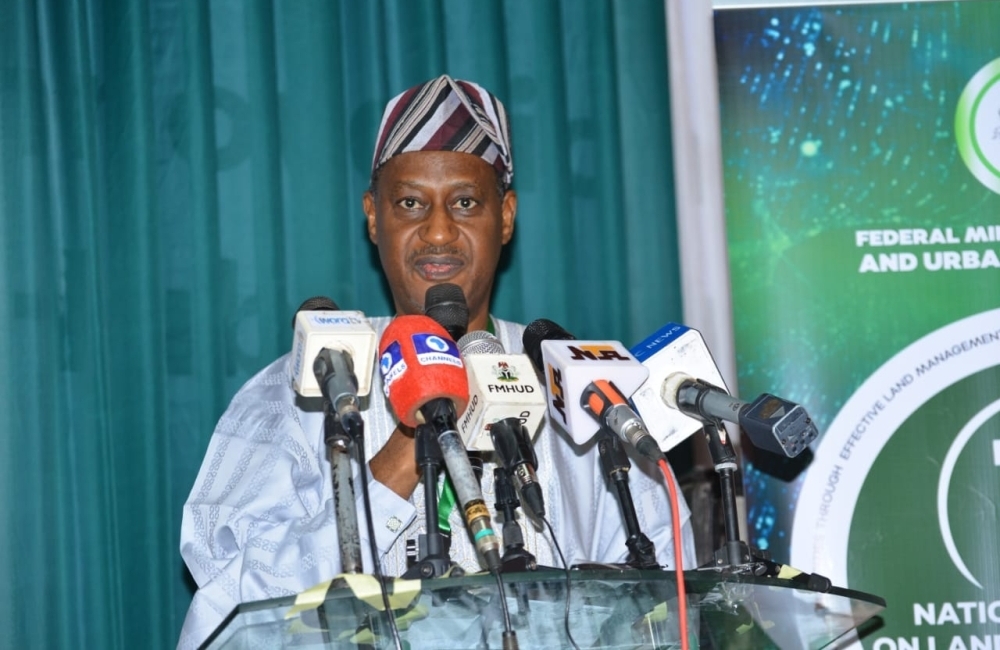
Housing Minister Urges States, Stakeholders to Join, Support National Homeownership Campaign
… says initiative will strengthen grassroots housing delivery and support ministry’s reform agenda
The Honourable Minister of Housing and Urban Development, Arc. Ahmed Musa Dangiwa, has called on State Governments, housing institutions, Development Finance Institutions (DFIs), and key stakeholders in the built environment to actively participate in and support the National Homeownership and Housing Development Campaign designed to provide a unified approach to housing development at subnational level.
The Minister made the call while delivering the thematic address for the 14th meeting of the National Council on Lands, Housing and Urban Development that was concluded in Ilorin, Kwara State over the weekend
The national honeownership campaign is scheduled to kick start in Katsina state on 4-5 March 2026 for the north west geo-political zone.
According to Dangiwa, the Campaign represents the Ministry’s determination to lead “a unified and coordinated approach to subnational housing development, working closely with State Governments to ensure that Federal programmes, reforms, finance opportunities and private capital are translated into real, visible and deliverable projects at the state level.”
“I want to use this platform to call on all stakeholders - Governors, Commissioners, Permanent Secretaries, housing institutions, developers, financiers and professionals - to actively support and participate in this Campaign, which will be flagged off in Katsina State from 4th to 5th March, 2026,” the Minister said.
Dangiwa urged stakeholders to see the initiative as a collective effort to drive sustainable homeownership across the states of the Federation.
The Campaign, being organised by Know This Nigeria Network (KTNN) in collaboration with the Federal Ministry of Housing and Urban Development, is designed to connect Federal housing reforms, policies and interventions with state-level implementation. It features two major components - Regional Executive Sessions and Public Homeownership Seminars - aimed at strengthening linkages between Federal Housing Institutions, DFIs and State Governments.
Arc. Dangiwa noted that the Campaign aligns with the Ministry’s newly introduced Unified Housing Delivery Framework, which seeks to deepen collaboration between the Federal and State Governments in delivering housing at scale and building sustainable cities nationwide.
“Our new direction is to ensure that the Ministry and all Federal Housing Institutions function as One Government, delivering results that directly support state and local implementation efforts. This is to ensure that we operate not in silos, but as One Coherent National Housing Delivery System working in direct support of State-level delivery,” he stated.
In his presentation at the Council meeting, the National Coordinator of the Campaign, QS Muhammed Baba Adamu, disclosed that Katsina State will host the North-West edition, which will serve as the inaugural outing of the nationwide programme.
He explained that a coordinated National Homeownership and Urban Development Campaign provides a practical framework for creating structured synergy between the Ministry, Federal Housing Institutions, DFIs and State Governments. “It provides clear and consistent platforms for awareness and engagement, and enables sustained interaction beyond one-off meetings or political cycles,” he said.
Adamu added that the Campaign will also strengthen the capacity of States to attract, absorb and deploy housing capital more effectively. “A central innovation of the Campaign is the encouragement of States to establish State Housing Reform Offices (SHROs). These offices will provide expert-level advisory and technical capacity within State Governments, enabling them to convert opportunities into bankable and deliverable projects,” he noted.
The 14th National Council on Lands, Housing and Urban Development is the sector’s highest policy and decision-making forum, bringing together key actors across the housing and urban development ecosystem.
This year’s edition, themed ‘Achieving Housing Delivery and Sustainable Cities through Effective Land Management, Urban Renewal, Promotion of Local Building Materials, and Public-Private Partnerships in Nigeria’, held from 19 to 23 January 2026.
It was attended by the host Governor, the Honourable Minister and Minister of State for Housing and Urban Development, lawmakers, Commissioners and Permanent Secretaries from the 36 states and the FCT, as well as housing institutions, agencies, developers and other stakeholders.
ADDRESS BY THE HONOURABLE MINISTER OF HOUSING AND URBAN DEVELOPMENT AT THE 14TH MEETI...
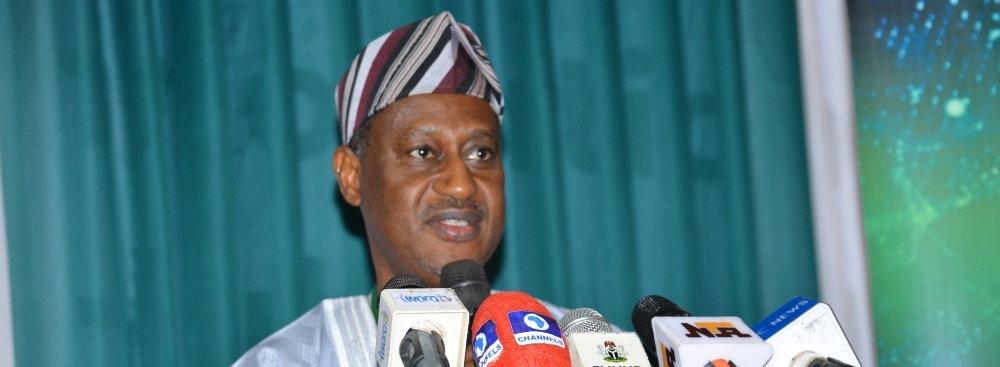
ADDRESS BY THE HONOURABLE MINISTER OF HOUSING AND URBAN DEVELOPMENT AT THE 14TH MEETING OF THE NATIONAL COUNCIL ON LANDS, HOUSING AND URBAN DEVELOPMENT ILORIN, KWARA STATE
Theme: Achieving Housing Delivery and Sustainable Cities through Effective Land Management, Urban Renewal, Promotion of Local Building Materials, and Public-Private Partnerships in Nigeria
Your Excellency, the Executive Governor of Kwara State, Malam AbdulRahman AbdulRazaq
Distinguished Chairmen of the Senate and House Committees,
Hon. Minister of State for Housing and Urban, Rt. Hon. Abdullahi Ata
Honourable Commissioners,
Permanent Secretaries,
Directors and Heads of Agencies,
Development Partners,
Professional bodies
Private Sector Leaders,
Ladies and Gentlemen,
1. It gives me great pleasure to be here in Ilorin for the 14th Meeting of the National Council on Lands, Housing and Urban Development.
2. Let me begin by warmly thanking His Excellency, the Executive Governor of Kwara State, Mallam AbdulRahman AbdulRazaq, and the good people of Kwara State for the excellent hosting and the hospitality extended to us.
3. Before I go into my remarks, let me first appreciate the valuable goodwill messages and presentations we have heard this morning. They have strengthened the discussion and brought fresh, practical perspectives to the theme of this Council.
4. I thank our Distinguished Members of the National Assembly, Honourable Commissioners, and our development partners for your thoughtful remarks.
5. I was particularly encouraged by the presentation on Financing Housing Delivery and Sustainable Cities in Nigeria: The Role of Development Finance and Public-Private Partnerships by Shelter Afrique Development Bank. It reminded us that government budgets, by themselves, cannot deliver housing at the scale Nigeria needs. What we must do—deliberately and consistently—is to mobilise long-term capital through development finance institutions, private investors, and structured PPPs, backed by clear policies, credible institutions, and bankable project pipelines.
6. I also want to expand on the presentation on the National Homeownership and Housing Development Campaign by KTNN, because it is particularly strategic and timely.
7. This Campaign reflects our commitment as a Ministry to leading a Unified and Coordinated Approach to Subnational Housing Development, working closely with State Governments so that Federal programmes, reforms, finance opportunities and private capital are translated into real, visible, deliverable projects at the State level.
8. In this regard, I want to use this platform to call on all stakeholders—Governors, Commissioners, Permanent Secretaries, housing institutions, developers, financiers, and professionals—to actively support and participate in the Campaign, which will be flagged off in Katsina State from 4th to 5th March, 2026.
9. Finally, I commend the presentation on Enhancing Housing Adequacy through the National Housing Data Programme. One of the biggest gaps in our sector has been the absence of reliable, centralised, and actionable housing data. Without data, planning becomes guesswork; investment becomes speculative; and tracking progress becomes difficult.
10. Taken together, these presentations reinforce a simple message: the solutions already exist; what we need now is stronger coordination, deeper commitment, and disciplined implementation.
11. It is against this background that I will now share my thoughts on the theme of this year’s Council Meeting.
LAND ADMINISTRATION AS THE FOUNDATION
12. As we all may be aware, No country can solve its housing challenge without fixing its land system. In Nigeria, land remains one of our greatest assets—yet it is also one of our biggest constraints. Lenghty titling processes, fragmented land records, high transaction costs, and weak planning controls continue to slow down housing delivery and discourage serious investment.
13. This is why land reform remain central to our agenda through the National Land Titling, Registration and Documentation Programme (Land4Growth). Our focus is to work with State Governments towards:
• Accelerating land registration, documentation and titling;
• Supporting States to digitise land records and modernise registries; and
• Reducing the time and cost of securing legal title.
14. In 2025, we secured strong national stakeholder buy-in through high-level engagements held in Abuja and Lagos. This includes a national stakeholders’ forum and targeted consultations with state governments, professional bodies, and development partners. We further deepened implementation readiness through dedicated World Bank missions to Kaduna, Kano, and Niger States. We also held a the Conference of Directors of Lands, which focused specifically on the Land4Growth’s implementation mission.
15. In the area of service delivery, our work continues to translate policy into practical outcomes. Over the past year, the Ministry processed and signed 1,743 Certificates of Occupancy, approved 345 secondary transactions, including mortgages and consents, and concluded 32 valuation approvals across the Federation.
16. In summary, secure land titles reduce risk, unlock capital, and empower citizens. I therefore urge all States to treat land reform not as a routine administrative matter, but as a deliberate economic growth strategy that will increase IGR, empower citizens and grow GDP.
URBAN RENEWAL AS A KEY STRATEGY
17. Nigeria is urbanising rapidly—often faster than planning and infrastructure can keep up. This is why urban renewal is not optional.
18. Our approach to urban renewal focuses on upgrading neighbourhoods, improving infrastructure, regularising tenure where possible, and creating safer, healthier, more productive communities.
19. Through the National Urban Renewal and Slum Upgrade Programme, we have already delivered over 240 projects nationwide with over 100 more ongoing at various stages of completion.
PROMOTING LOCAL BUILDING MATERIALS
20. One of the biggest drivers of housing unaffordability in Nigeria today is our heavy dependence on imported building materials and components.
21. In this regard, the Ministry has also made progress on the Building Materials Manufacturing Hubs. This is a critical intervention aimed at reducing construction costs, deepening local manufacturing, and strengthening housing value chains. We have secured an Outline Business Case (OBC) Compliance Certificate from ICRC for the Lekki Free Trade Zone hub. This represents a a major regulatory milestone. We have also engaged consultants to prepare bidding and concession documents for hubs in the remaining five geo-political zones.
22. When we build with local materials, we lower costs, stabilise prices, expand employment, and deepen national economic resilience.
PUBLIC-PRIVATE PARTNERSHIPS: FROM POLICY TO PROJECTS
23. In 2025, the Ministry made significant progress across major Renewed Hope City projects in Karsana, Abuja; Ibeju-Lekki, Lagos; and Kano, with several phases reaching commissioning readiness and active house sales already underway. This progress demonstrates our growing capacity to structure, supervise, and de-risk large-scale PPP housing developments, mobilise private capital, and translate government policy into market-ready projects that are delivering real homes for Nigerians.
24. But PPPs only work when there is clarity, transparency, and timely decision-making. This Council must therefore continue to strengthen trust, capacity, and coordination across all levels of government.
FEDERAL COORDINATION AND DELIVERY ARCHITECTURE
25. Your Excellency, Distinguished ladies and gentlemen, as you are aware, the Federal Ministry of Housing and Urban Development is designated as the Coordinating Ministry for housing, land, and urban development in Nigeria.
26. In this role, the Ministry provides national leadership by:
• Setting policy direction for housing delivery, urban renewal, and land reform;
• Coordinating the activities and programmes of Federal Housing Institutions;
• Aligning housing and urban development initiatives with the Renewed Hope Agenda of the Federal Government;
• Leading engagement with Development Finance Institutions and private capital providers; and
• Establishing clear standards, delivery frameworks, and implementation guidelines to support housing delivery at scale.
27. To support this role, Nigeria operates a defined Federal delivery and financing architecture, comprising:
• The Federal Mortgage Bank of Nigeria (FMBN), providing affordable mortgage products, NHF-linked financing, and rent-to-own schemes all at single digit interest rates and up to 30-years;
• The Federal Housing Authority (FHA), serving as master developer, PPP structurer, and estate delivery partner;
• The Nigeria Mortgage Refinance Company (NMRC), enabling long-term mortgage refinancing and market liquidity;
• The MOFI Real Estate Investment Fund (MREIF), mobilising concessional capital for housing/mortgage development; and
• Family Homes Funds Limited (FHFL), delivering social and affordable housing targeted at low-income Nigerians.
28. As part of the Renewed Hope Agenda of His Excellency, President Bola Ahmed Tinubu, GCFR, our Strategic Plan in 2026 is to strengthen coordination across these institutions.
29. This is to ensure that they operate not in silos, but as One Coherent National Housing Delivery System, working in direct support of State-level implementation.
30. To translate this coordinated Federal system into tangible outcomes at the subnational level, we have developed a Unified Housing Delivery Framework that enables structured State participation, scale, and impact.
31. The objective of this Framework is clear:
to ensure that the Ministry and all Federal Housing Institutions operate as One Government, with complementary and clearly defined roles, while providing State and Local Governments with a predictable, credible framework for collaboration on housing delivery.
32. This is particularly important at a time when many States are experiencing improved fiscal capacity and requiring structured ways to work with the Federal Government to deliver housing at scale.
33. Under this Framework, State Governments are to participate as active counterparts across four flagship Federal programmes.
34. First is the Renewed Hope Housing Programme. Under this Programme, States are encouraged to scale housing delivery beyond the Federal baseline of 250 housing units per site.
Participating States are expected to:
• Commit land and supporting infrastructure; and
• Make budgetary provision to deliver at least 1,000 housing units per annum, in complement to Federal delivery.
In return, the Federal Government mobilises Federal Housing Institutions to support State Housing delivery, including:
• FMBN and MREIF, to provide single-digit, long-term off-take mortgages and equity support;
• NMRC, to provide mortgage refinancing and improve affordability; and
• FHA, to provide technical, project structuring, and delivery support where required.
In addition, the Ministry is ready to work with States that wish to develop Renewed Hope Cities—large-scale, mixed-use urban developments—by leveraging private sector capital through PPPs, supported by appropriate State Guarantees and enabling frameworks.
Under this city-scale model, the Federal Government will mobilise institutions such as Family Homes Funds Limited, NSIA, and InfraCredit to support States in structuring sustainable financing frameworks, crowding in long-term capital, and ensuring that these cities are financially viable, inclusive, and resilient.
35. Second is State-Led Social Housing Programme
The State-Led Social Housing Programme is designed as a structured State counterpart to the National Social Housing Programme, under which the Federal Government is already working to deliver a baseline of 100 housing units in each Local Government Area of the Federation.
Under this Programme, our expectation is clear and practical:
State Governments, working in collaboration with Local Governments, are encouraged to commit to the delivery of at least 50 social housing units in each Local Government Area. This would serve as a counterpart contribution to the national effort to expand access to decent and affordable housing for low-income and vulnerable Nigerians.
This approach ensures that social housing delivery is:
• Locally driven, reflecting community needs;
• Scalable, moving beyond isolated pilot projects; and
• Deeply impactful, with direct benefits at the grassroots level.
To support State and Local Government participation, the Federal Government will:
• Mobilise Family Homes Funds Limited (FHFL) as an enabling agency leveraging its already established links with DFIs;
• Deploy FMBN products, including NHF-linked/cooperative and rent-to-own financing, to support affordability and off-take; and
• Facilitate access to concessional DFI financing to reduce costs and ensure long-term sustainability.
Through this partnership model, social housing becomes a shared Federal–State–Local Government responsibility, delivering visible impact, supporting poverty reduction, and strengthening social stability.
36. The third component is the State Urban Renewal and Inner-City Regeneration Programme. The State Urban Renewal and Inner-City Regeneration Programme is designed as a structured State counterpart to the National Urban Renewal and Slum Upgrade Programme, under which the Federal Government is already upgrading deteriorating urban areas and slums nationwide.
Under this Programme:
• States lead land assembly, infrastructure provision, and resettlement where required;
• FMHUD provides the national framework, standards, and coordination;
• DFIs provide long-term finance and guarantees; and
• Private sector partners undertake redevelopment, construction, and asset management.
This Programme enables States to transform aging estates and congested inner cities into modern, mixed-use, liveable districts that improve quality of life, increase land and property values, and expand Internally Generated Revenue.
37. Fourth is the State Housing PPP and Investment Platform
This Programme encourages State Governments to establish a State Housing PPP and Investment Platform with the capacity to build housing investment pipelines per State over time.
The platform will be supported by:
• FMHUD to ensure coordination and investor confidence;
• DFIs to ensure provision of long-term debt and guarantees
Conclusion
38. Your Excellency, Distinguished colleagues, this Unified Framework represents a deliberate shift—from fragmented interventions to coordinated national delivery.
39. The Federal Government provides leadership, institutions, and finance. States provide land and subsidies, execution, and local leadership and counterpart or additional budgetary funding or interventions to complement federal effort.
40. Together, we all work in partnership with our partners to deliver homes, renew cities, and unlock growth.
41. Thank you, and I wish us productive deliberations and actionable outcomes.
Ministry Boosts Housing Delivery, Sustainable Urban Development Through Policy Harmon...
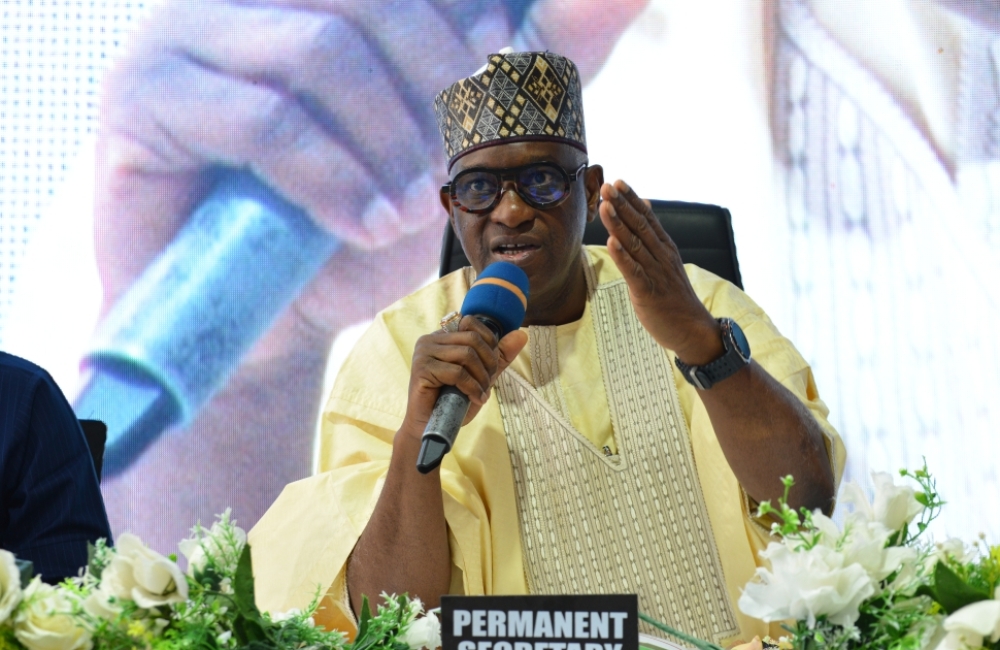
Ministry Boosts Housing Delivery, Sustainable Urban Development through Policy Harmonization, PPP Strategy
Permanent Secretary, Federal Ministry of Housing and Urban Development, Dr. Shuaib Belgore has restated the commitment of the housing ministry to driving policy harmonisation and deepening the Public - Private collaboration as strategies to accelerating housing delivery and sustainable urban development in Nigeria.
Dr. Belgore, stated this at the ongoing 14th Meeting of the National Council on Lands, Housing and Urban Development (NCLHUD) in Ilorin, Kwara State, Wednesday, 21st, January, 2026.
He noted that effective coordination across all tiers of government, supported by the private sector, remains critical to addressing the nation’s housing deficit.
“Achieving sustainable housing delivery and functional cities begins with sound policy formulation, rigorous sectoral reviews, and the implementation of actionable strategies,” Belgore said.
He explained that the Council serves as the highest statutory policy advisory platform in the sector, bringing together key stakeholders to align national and sub-national actions around shared priorities for housing and urban development.
According to him, growing pressure on public resources has made Public–Private Partnerships (PPPs) indispensable, stressing that “harmonised land administration systems, planning standards, financing frameworks, and delivery models are essential to creating a predictable, investor-friendly environment that accelerates housing supply.”
Dr. Belgore identified persistent challenges, including limited access to land, high construction costs, weak land documentation, inadequate mortgage financing, and skills gaps, adding that the demerger of the Ministry from Works was a deliberate step to reposition the housing sector for greater impact.
He assured stakeholders of the Ministry’s continued policy leadership and institutional coordination, urging them to “translate harmonised policies into measurable outcomes that improve access to affordable housing for Nigerians.”
Commending the Honourable Minister of Housing and Urban Development, Arc. Ahmed Musa Dangiwa, for ongoing sectoral reforms, the Permanent Secretary highlighted land governance digitisation, urban renewal, promotion of local building materials, and deepened PPPs as key drivers of sustainable housing delivery.
He also disclosed the Ministry’s intervention in establishing local building materials manufacturing hubs aimed at reducing construction costs and creating jobs, calling on stakeholders to engage constructively on memoranda before the Council to ensure actionable and coordinated outcomes nationwide.
In his remarks, the Commissioner of Housing and urban development, Kwara State, Dr. Segun Ogunsola, noted that the Kwara State is not lagging behind with regards to urban development in face of global best practices in housing and urban development.
He argued that the 14th National Housing Council is coming at a time when managing urban sprawl amidst population growth is fast becoming a major challenge.
Ogunsola assured stakeholders that the Kwara State Government will work with the Federal Government via the Federal Housing Ministry to bridge the gap in housing deficit, and management of urbanisation across the state.
National Housing Council, FG's Commitment To Inclusive Engagement, Cooperative Federa...
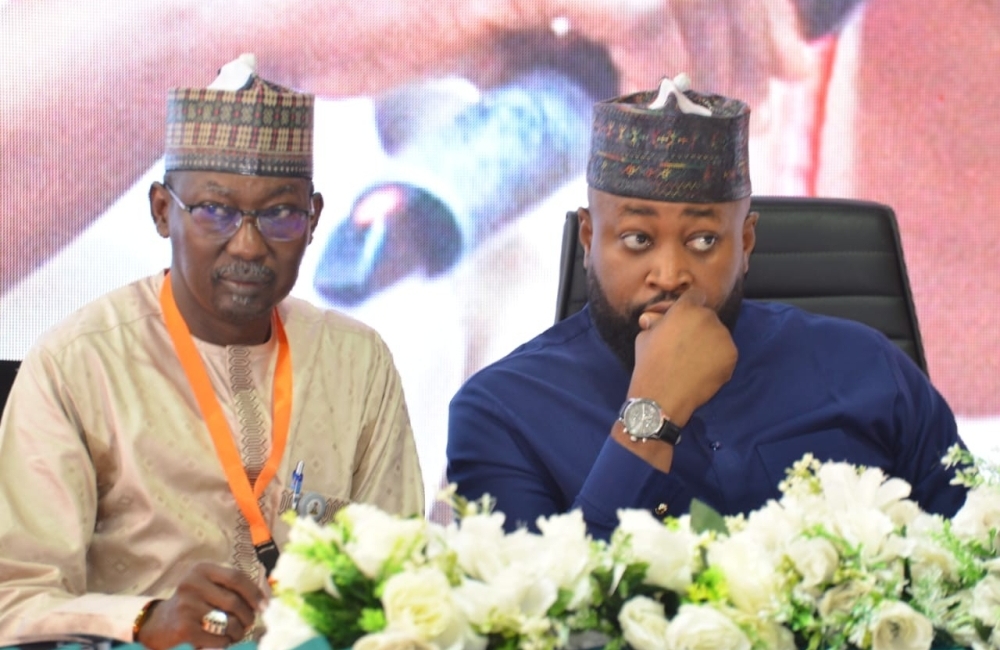
National Housing Council, FG's Commitment to Inclusive Engagement, Cooperative Federalism in the Built Environment - FG
The annual meeting of the National Council on Lands, Housing and Urban Development has been described as a commitment of the federal government through the housing ministry, to inclusive engagement and cooperative federalism in the built environment
The Director of Planning, Research and Statistics (PRS) of the Ministry of Housing and Urban Development, Muhktar Ilyasu Umar, stated this in his introductory remarks at the opening of the 14th Meeting of the Council meeting in Ilorin, Kwara State, Monday, 19th, 2026.
" The Council meeting reaffirmed the Federal Government’s commitment to inclusive engagement, cooperative federalism, and evidence-driven policymaking as essential pillars for addressing the nation’s housing and urban development challenges" he stated
The meeting brings together critical stakeholders in the housing sector to chart a sustainable path for housing delivery, urban development, land administration and management in Nigeria.
It represents the apex advisory body for the sector and draws participation from Honourable Commissioners, Permanent Secretaries, Directors, State Surveyors-General, and other key actors in the built environment across the Federation.
The theme for the meeting is “Achieving Housing Delivery and Sustainable Cities through Effective Land Management, Urban Renewal, Promotion of Local Building Materials, and Public–Private Partnerships in Nigeria,”
The theme, according the Director PRS, reflects the urgent national imperative to respond holistically to rapid urbanisation, population growth, climate change impacts, and Nigeria’s widening housing deficit through innovative and practical solutions.
The sessions will focus on deliberations over critical sectoral issues, consideration of memoranda submitted by States and stakeholders, review of the implementation status of resolutions from the 13th Council Meeting held in Gombe, and refinement of policy proposals for higher-level review.
Mr. Ilyasu explained that deliberations are structured around eight thematic areas, including policy formulation and implementation; institutional strengthening; effective land management and administration; national land governance frameworks; promotion of local building materials and technologies; urban renewal and regeneration; public–private partnerships; and innovative housing finance strategies.
He urged participants to engage constructively, share best practices, and advance implementable recommendations capable of strengthening land governance, revitalising Nigerian cities, reducing the housing deficit, and improving citizens’ quality of life.
On his part, the Commissioner for Housing and Urban Development, Kwara State, Dr. Segun Ogunsola noted that theme of the Council meeting is apt as it aligns with President Bola Ahmed Tinubu's Renewed Hope Agenda.
The 14th National Council on Lands, Housing and Urban Development is expected to produce far-reaching resolutions that will guide policy direction and implementation across all tiers of government in the sector.
Housing Council Critical Avenue To Reposition Built Environment - Belgore ...
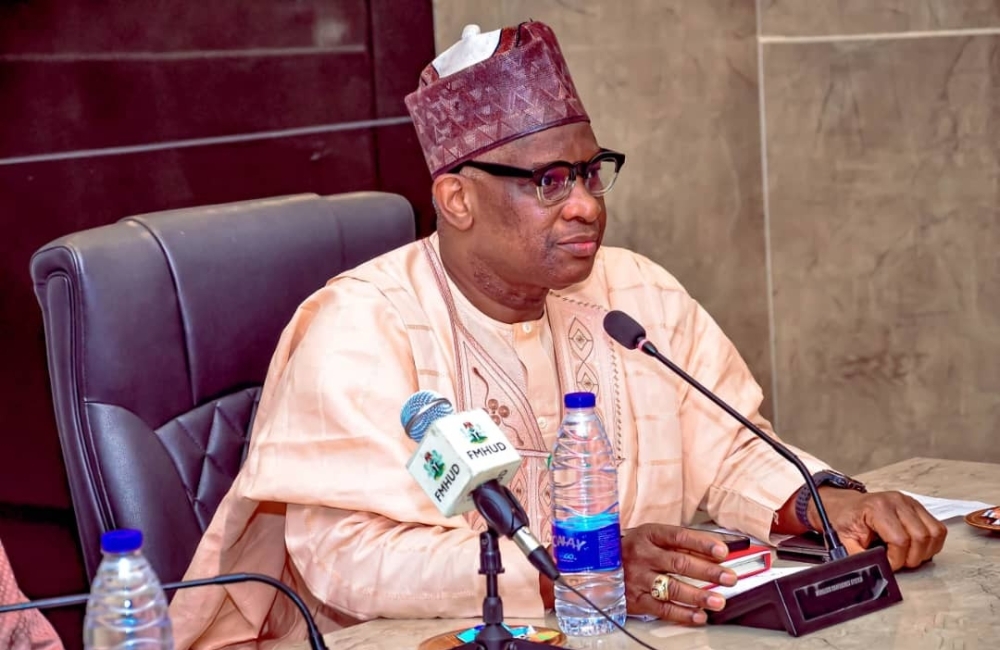
Housing Council Critical Avenue To Reposition Built Environment - Belgore
Permanent Secretary, Federal Ministry of Housing and Urban Development, Dr. Shuaib Belgore has stated that the National Council on Lands, Housing and Urban Development is a forum that provides a strategic platform for aligning federal and state policies and accelerating reforms in the housing and urban development sector.
“The National Council Meeting remains a critical avenue for strengthening intergovernmental collaboration, reviewing sectoral policies, and evolving practical solutions that will fast-track the delivery of affordable housing and sustainable urban development across the country,” Belgore said.
Belgore spoke in his office in Abuja on the importance of the annual meeting of the national council on Lands, Housing and Urban Development scheduled to hold in Ilorin, Kwara State beginning on the 19th January, 2026.
The housing council meeting which is the 14th in the series will be held under the theme: “ Achieving Housing Delivery and Sustainable Cities Through Effective Land Management, Urban Renewal, Promotion of Local Building Materials, and Public-Private Partnership in Nigeria.”
The meeting, a statutory forum for policy harmonisation between the Federal and State Governments, will bring together relevant stakeholders in the built environment to brainstorm, deliberate, share ideas and profer solutions on policy and regulatory matters in order to move the sector forward.
Participants at the meeting include; States’ Commissioners, Permanent Secretaries, Directors in charge of Lands, Housing and Urban Development, Chief Executives of Housing Corporations, Surveyor-Generals, professional bodies, and other key stakeholders in the built environment sector.
Hosted by the Honourable Minister of Housing and Urban Development, Arc. Ahmed Musa Dangiwa, the council meeting will deliberate on critical issues bordering on effective land management, housing delivery, urban renewal, promotion of local building materials, and the expansion of public-private partnerships as drivers of sustainable and inclusive cities.
The Executive Governor of Kwara State, His Excellency Mallam AbdulRahman AbdulRazak, the host, is expected to serve as the Special Guest of Honour at the meeting, which will take place at the Kwara Innovation Hub, Ahmadu Bello Way, GRA, Ilorin, Kwara State.
2026 : Housing. Ministry Prioritizes Projects Completion, Urges Staff To Consol...
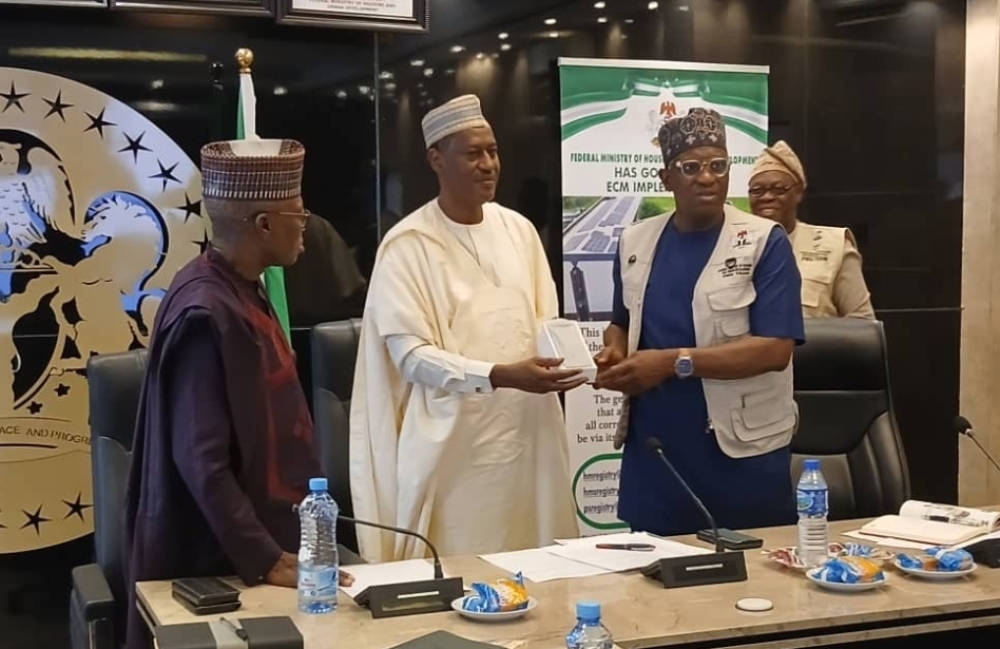
2026 : Housing. Ministry Prioritizes Projects Completion, Urges Staff to Consolidate on Legacies
* 2026 our defining, decisive year - Dangiwa
Housing Minister Arc. Ahmed Musa Dangiwa, has stated that the ministry will in 2026 prioritise the completion of all ongoing projects, particularly the Renewed Hope Housing Projects, re-emphasising the commitment of the administration of President Bola Ahmed Tinubu to provide Nigerians access to affordable and decent housing.
Dangiwa spoke during the expanded ministry's management meeting with heads of departments and units, to review the 2025 performance of the ministry and presentation of the 2026 work plan.
“ I would like to tell you that this year is our defining year. 2026 is not just another year; it is our decisive year. This is the year Nigerians will look back on and ask what the Ministry of Housing and Urban Development has delivered,” he said.
The minister explained that, despite funding challenges in 2025, the ministry was able to appreciably achieve milestones in both its presidential priorities and ministerial deliverables, including reforms in land administration, and delivery of Renewed Hope Cities in Karsana Abuja, Kano and Lagos, which are due for commissioning soon.
He urged the staff to step up efforts and commitment, saying " for us to achieve this much despite the 2025 funding constraints, we can achieve more this year when funding is made available"
Dangiwa disclosed the firm commitments made by the Federal government to address funding gaps and clear outstanding liabilities in 2026.
Accordingly, the minister urged the Directors of the departments of Public Private Partnership (PPP) and Public Buildings to intensify monitoring of various sites to ensure effective and timely delivery of projects, stressing that Nigerians expect affordable and decent housing.
The minister further charged heads of departments to ensure that contractors that have been mobilised are given clear timelines for project completion.
“You need to engage these contractors closely by ensuring that those mobilised return to site and are properly monitored, especially from the controller’s side,” he emphasised.
He noted that the ministry must consolidate its legacy in 2026 in order to showcase its achievements to Nigerians and the international community, calling for the cooperation and inputs of staff to help the Federal Government achieve its Renewed Hope Housing Agenda.
On Renewed Hope Cities, the Minister disclosed that three additional locations namely Maiduguri, Enugu and Port Harcourt will come on stream, bringing the total number to six, alongside the existing projects in Lagos, Abuja and Kano.
Earlier, the Permanent Secretary, Dr. Shuaib Belgore, stated that the departments of Public Private Partnership and Public Buildings are expected to meet their targets in 2026, assuring them of needed support to achieve their goals.
Dr. Belgore noted that maximum publicity programmes would be deployed to showcase the successes and achievements as part of the administration’s scorecard in 2026, adding that Nigerians are eager to see improved Renewed Hope housing delivery
Service Delivery Awards: Dangiwa Urges Housing Ministry To Build On Momentum ...

Service Delivery Awards: Dangiwa Urges Housing Ministry To Build On Momentum
* As Ministry won OHCSF, SERVICOM and Sporting Awards
Housing and Urban Development Minister, Arc. Ahmed Musa Dangiwa, has urged members of staff to build on the current momentum and strengthen the Ministry’s service culture in order to sustain its position as a reference point for excellence in public service delivery.
Dangiwa made the call against the backdrop of the various awards won by the ministry, including OHCF, SERVICOM and Sporting events.
The Permanent Secretary of the Ministry, Dr. Shuaib Belgore, OON, received the HCSF "Go Live Category Award" for transiting his ministry to paperless operation.
Under Dr. Belgore, the ministry adopted the full implementation of the Enterprise Content Management (ECM) operations on the 30th of September 2025, signalling the departure from paper operations.
ECM, is a part of the Federal Civil Service Strategy and Implementation Plan 2021-2025 (FCSSIP25), a reform blueprint designed to digitise the federal bureaucracy and transform the civil service into a world-class entity by 2025.
Other awards won by the housing ministry are; 2nd Best Ministerial SERVICOM Unit (Ministry Team A), Permanent Secretary's award for strengthening Servivom operations across the ministry as a very supportive CEO.
The Head of the Ministry’s Reform Coordination and Service Improvement, Mrs. Philips- Ogoniba Ibifuro also received the 2025 Best NODAL Officer (Ministry Team A), for outstanding coordination, leadership, and dedication to service improvement. The Ministry’s sporting contingent also won 10 medals at the recently concuded Federal Civil Games fedtival held in Yola, Adanawa state.
During a brief presentation of the awards to the leadership of the ministry, Minister Dangiwa congratulated the Permanent Secretary Dr Belgore, the Ministry's Servicom Nodal officer, and members of the ministry's sporting contingent for the honours brought to the ministry.
He praised the Permanent Secretary’s leadership style, describing it as accountable, team-oriented, and result-driven, noting that the awards represent a win for the entire Ministry.
The Minister as well commended the Permanent Secretary for ensuring the smooth implementation of the paperless system in the Ministry, acknowledging the role of the ICT Department team in facilitating the transition alongside the efforts of the entire staff.
Similarly, Arc. Dangiwa applauded the Head of the Ministry’s Reform Coordination and Service Improvement, Mrs. Philips- Ogoniba Ibifuro for her SERVICOM’s 2025 Best NODAL Officer award, recognizing her hardwork, professionalism and consistency in applying the SERVICOM principles in the Ministry.
The Minister expressed delight over the recognition of the Ministerial SERVICOM Unit as the second-best performing ministerial unit, describing the awards as a reminder that public service is fundamentally about the people being served.
“These awards remain with us and remind us that public service is about the people we serve, and that we must always strive to deliver services that are timely, transparent, and of good quality,” he said.
The Minister also congratulated the Ministry’s sports team, assuring them of the Ministry’s continued support, both financially and morally, in the coming year.
Speaking earlier, the Permanent Secretary, Dr. Shuiab Belgore, expressed appreciation to the Office of the Head of the Civil Service of the Federation for the Transformational CEO award, attributing the recognition to the collective support and commitment of the Ministry’s management and directors.
He also commended the Head of Reform and Coordination, Mrs. Phillips Ogoniba, for her outstanding contributions, describing her performance as a source of pride to the Ministry.
Belgore further acknowledged the Ministry’s sports team for winning ten medals comprising four golds, three bronze, and three silver, at the Federal Civil Service Games (FEPSGA).
He also applauded the ICT Department for driving ECM compliance, noting that improved inter-departmental collaboration has enhanced efficiency across the Ministry.
On her part, the Head of Reform Coordination and Service Improvement, Mrs. Philips- Ogoniba dedicated the awards to the leadership of the Ministry, particularly the Honourable Minister and the Permanent Secretary, as well as members of the Ministerial SERVICOM Committee and staff, whose collective efforts and teamwork, she noted, made the achievement possible.
She reaffirmed the resolve of the Department to sustain and deepen ongoing reforms aimed at improving service standards, responsiveness, and accountability.
Dangiwa Wins Transformational Africa Housing Minister Of The Year Award, Calls For Co...
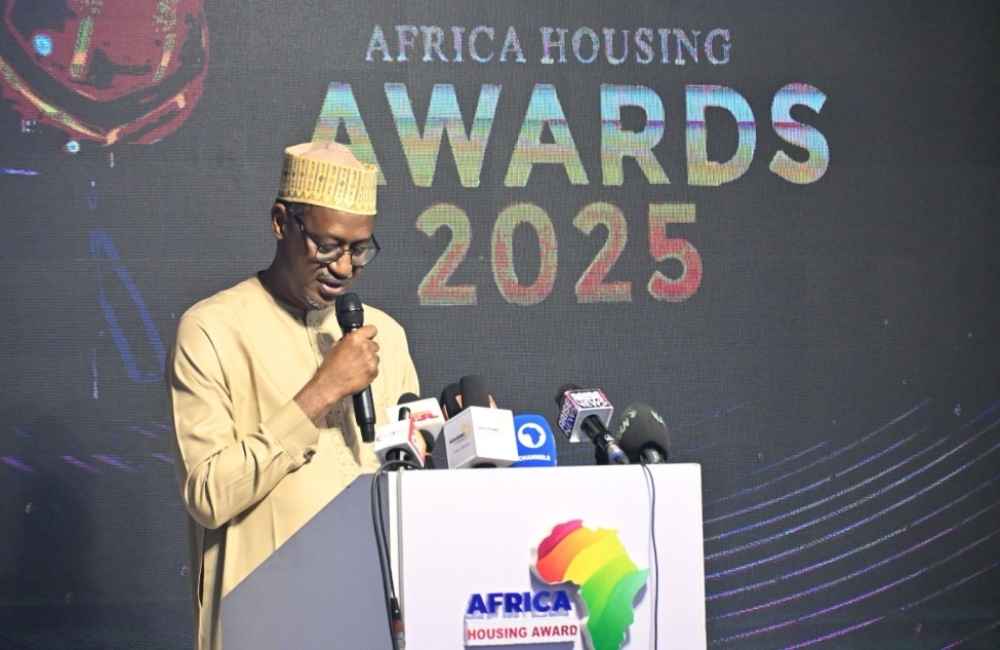
Dangiwa Wins Transformational Africa Housing Minister of the Year Award, Calls for Continental Action on Housing
The Honourable Minister of Housing and Urban Development, Arc. Ahmed Musa Dangiwa, FNIA, FCIB, has been honoured with the Transformational Africa Housing Minister of the Year Award at the 2025 Africa Housing Awards & Industry End-of-Year Dinner, held at the Fraser Suites, Abuja, on Friday, 12th December 2025.
While accepting the award, the Minister described the recognition as a tribute to the leadership of President Bola Ahmed Tinubu, GCFR, whose Renewed Hope Agenda has placed housing and urban development at the centre of Nigeria’s economic transformation.
He stated that the award reflects a deliberate shift in Nigeria’s housing policy — from fragmented interventions to a structured national housing programme focused on scale, systems, and measurable impact.
Arc. Dangiwa noted that Africa’s housing crisis has reached a scale that requires urgent, coordinated action, stressing that housing is no longer a peripheral social issue but a central driver of economic growth, social stability, and human dignity.
According to him, over 54 million Africans currently live in urban slums, while the continent faces a housing shortfall of at least 51 million units, with a financing gap estimated at about $1.4 trillion. He warned that without accelerated solutions, Africa’s housing deficit could rise to about 130 million units by 2030.
Speaking on Nigeria’s progress, the Minister disclosed that in the last two years, the Federal Ministry of Housing and Urban Development has commenced over 10,000 housing units across 14 states and the Federal Capital Territory, while ongoing urban-renewal and slum-upgrade programmes have impacted more than 150 communities nationwide, delivering critical infrastructure, creating jobs, and strengthening local building-material value chains.
He commended the organisers of the Africa International Housing Show and the Africa Housing Awards, describing the platform as a vital engine for advocacy, accountability, and continuous sectoral engagement across Africa.
“Housing is more than buildings. It is dignity for families, security for communities, and opportunity for nations. It is also one of the strongest engines for jobs, value creation, and inclusive growth,” the Minister said.
Arc. Dangiwa emphasised that no country can solve Africa’s housing deficit alone, calling for deeper collaboration across governments, the private sector, financiers, and development partners. He stressed the need to treat housing as a continental productivity agenda, anchored on land-governance reform, bankable housing finance, climate-smart construction, sustainable urban planning, and strong local value chains.
Reaffirming Nigeria’s commitment, the Minister pledged that the Federal Ministry of Housing and Urban Development would continue to deepen continental partnerships, accelerate innovative housing-finance solutions, strengthen construction and sustainability innovations, and ensure that housing policies remain people-centred and dignity-driven.
Congratulating fellow award recipients from across the continent, Arc. Dangiwa said the recognition underscores what is possible when African-led solutions are matched with discipline, partnership, and political will.
“Africa’s housing future will be built together — or not at all,” the Minister concluded.
Belgore Assures Improved Welfare For Staff, Calls For Additional Commitment To Delive...
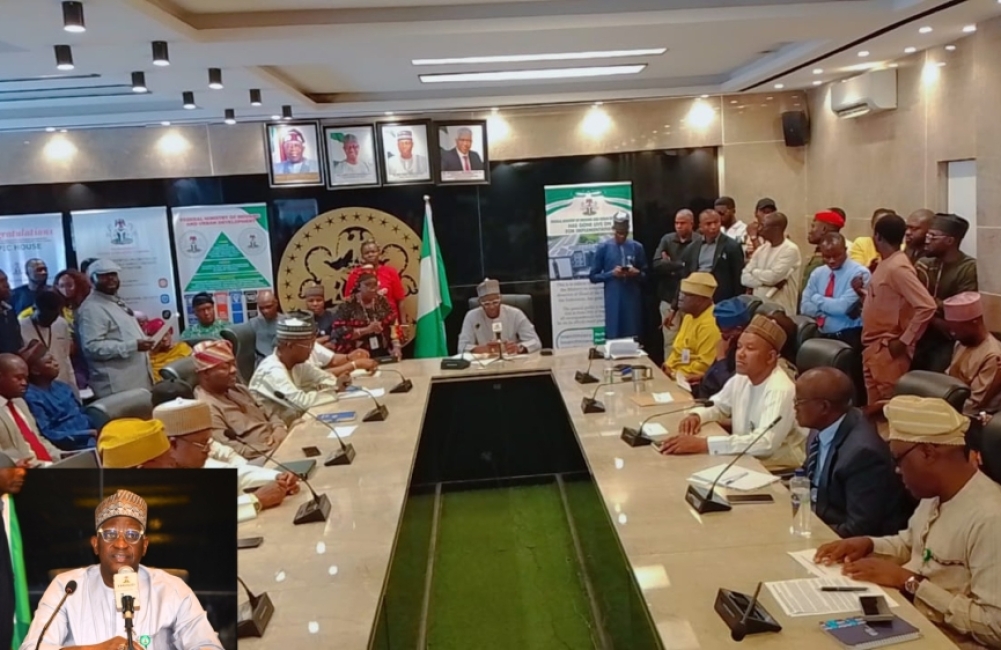
Belgore Assures Improved Welfare for Staff, Calls for Additional Commitment To Deliver Presidential Priorities
* Urges union leaders to engage, harmonize and present a unified demands for his action
The Permanent Secretary, Federal Ministry of Housing and Urban Development, Dr Shuaib Belgore has assured the staff of the ministry of improved welfare, and called for additional commitment to deliver the Presidential priorities and ministerial mandates of providing affordable housing for Nigerians
Dr Belgore spoke during his interactive meeting with the staff of the ministry, saying the purpose of the meeting was to understand the concerns of staff and address them accordingly.
" I am a workaholic, but I am encouraged because everyone here wants to work. The problem is job satisfaction and happiness at work. I assure you I will do everything to make your work and life easier,” he stated.
On transportation difficulties, Dr. Belgore told the staff of the plan by the Ministry to procure new buses, and in the interim directed the Director of Human Resources Management to move two buses from the Lagos field office to the headquarters in Abuja to augment the existing fleet.
“I have looked into the bus issue and I know the buses have run down. That is why new buses are being added to the fleet. I am hopeful these will bring some respite,” he said.
On sports matters, he announced that funds had been sourced and released to enable the Ministry’s participation in the ongoing sports tournament in Adamawa state.
Regarding working tools, Dr. Belgore revealed that the procurement process for computers, laptops, desktops, printers, and scanners has commenced, emphasizing that with the right tools, staff can perform optimally from any location.
Accordingly, he disclosed that the ministry’s manpower challenge would soon be addressed, as the ministry is working to secure final approaval for recruitment of new officers to boost the Ministry’s workforce, which has significantly reduced due to the progressive retirement of staff from the Federal Civil Service.
" Upon assumtion of duty, i observed a drastic reduction in staff strength, necessitating the recruitment of new personnel. We have written to the Head of the Civil Service of the Federation, the Chairman of the Federal Civil Service Commission, and the President, for special approval for recruitment due to our peculiar operational structure" he explained
According to him, the ministry has a peculiar problem "because our field offices all over the country need staff to work there"
Sharing insights into his work ethics, he noted that the commitment and positive attitude of staff motivate him to work harder, stressing that the major gaps are job satisfaction and workplace happiness, issues he pledged to address.
He appealed for continued patience, dedication, and trust from staff as management works to improve conditions, and clear the backloge of outstanding liabilities as soon as its practicable.
Dr Belgore directed the union leaders to engage with the Directors of Human Resource, Finance and Accounts, and Reform Coordination & Service Improvement to harmonize their demands and present a unified resolution for his action.
“ Work together and come up with a consensus. Bring the resolution to me, and I assure you we will implement what is agreed. I want you to enjoy coming to work. I will do my best to make this a conducive work environment,” he concluded
Earlier, the Director of Human Resources Management, Ademola Ayodele, commended the Permanent Secretary for his exemplary leadership and commitment to creating an enabling environment for optimal staff performance.
He reaffirmed the management’s commitment to staff welfare through open communication, dialogue, and continuous engagement.
The Chairman of the Staff Union, Dr. Frank Ejiofor, also commended the Permanent Secretary for convening the meeting and stressed the need for continuous motivation, support, and welfare enhancement to boost productivity amid current economic realities.
He emphasized the importance of regular dialogue and improved staff remuneration to cushion prevailing hardships, saying that staff are going through difficult times with high cost of transportation and prolonged delay in the settlement of outstanding liabilities.
" We are suffering and crying in silence, and yet we are commited to give our best for the Ministry to deliver on it's mandates with the necessary motivation and support of the management" he remarked
Housing Minister Charges States To Allocate One-to-three Percent Annual Budgets For L...
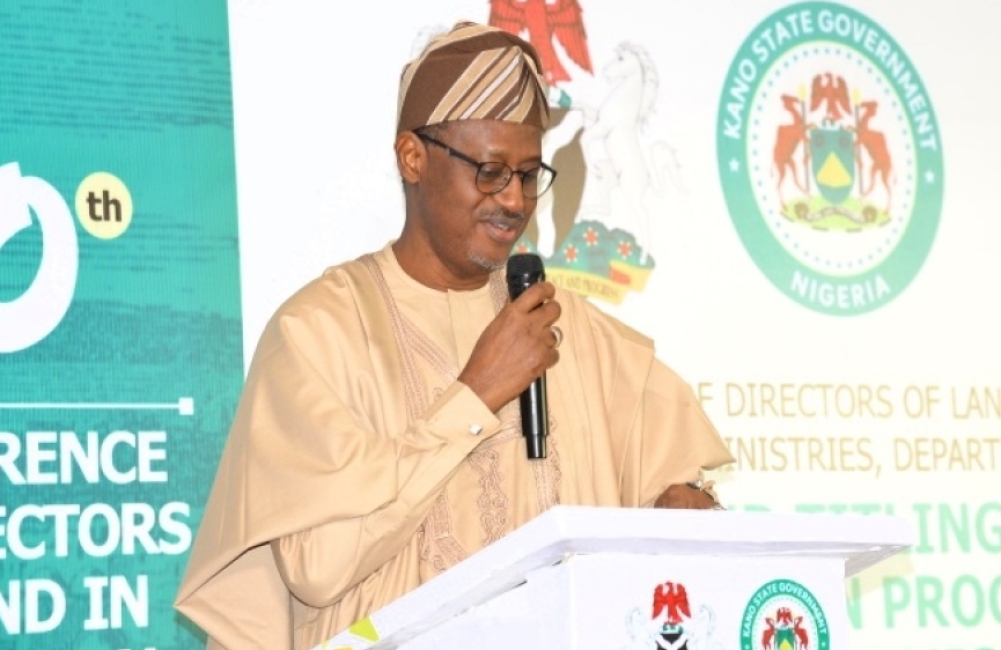
Housing Minister Charges States To Allocate One-to-three Percent Annual Budgets For Land Titling Programme
* Says Land4Growth is Nigeria’s Surest Path to a $1 Trillion Economy
The Honourable Minister of Housing and Urban Development, Arc. Ahmed Musa Dangiwa has issued a bold call for State Governments to dedicate between 1 and 3 percent of their annual budgets to land administration and systematic land titling, declaring that credible land governance is the country’s strongest lever for building a trillion-dollar economy.
Dangiwa made the call in Kano, in a keynote address at the opening of the 30th Conference of Directors of Lands in the Federal and States Ministries, Departments and Agencies, Tuesday, 25th November, 2025.
" I strongly recommend and charge that Nigerian State Governments ring-fence between 1 and 3 percent of their annual budgets for land administration and systematic titling during the reform and scaling phase" he stated
The theme for the 30th Conference is Nigeria Land Titling, Registration and Documentation Programme (NLTRDP): Implementation Mission
Dangiwa explained that International evidence shows very clearly that Ministries responsible for land administration around the world operate on about one percent of the total public budget.
He said " based on these global benchmarks and our own national realities ... a sustainable allocation of 0.5 to 1 percent will be sufficient to maintain digital registries, continue systematic documentation, and keep the cadastre up to date"
The minister further stated that, half of the allocation must go directly to real service delivery- systematic titling, digitisation, modern registries, surveys and dispute-resolution-not vehicles, furniture or overheads.
" If we spend on impact, not overheads, every State will unlock revenue, citizens will gain secure property rights, and land will become a true economic asset, not dead capital. And let me say this confidently: the success of the Land4Growth Programme is Nigeria’s surest bet to achieving the One Trillion Dollar Economy" he remarked
Accordingly, Dangiwa stated that, land becomes bankable, when citizens can use it for credit, when investors trust the registry, and when States earn sustainable revenue from property markets, saying that ' we will unlock growth on a scale that can transform our national economy. That is how land becomes wealth, and how this sector can power Nigeria’s economic future.” he stated.
The Minister further disclosed that the last World Bank Doing Business ranking on Registering Property, Nigeria performed poorly due to excessive procedures, long timelines, and high costs, this he said, creates uncertainty for investors and unnecessary hardship for citizens
He noted the identical challenges across the states as; complex manual workflows, fragmented and outdated paper records, corruption risks, tenure insecurity for vulnerable groups, and very low revenue collection despite huge potential.
He also told the participants that, under President Bola Ahmed Tinubu’s Renewed Hope Agenda, land administration will be treated not as routine bureaucracy but as a strategic economic reform, adding that government had begun to translate the commitment into concrete action.
" I have directed the Director Lands to make sure every Director has a copy of the Concept Note and Framework. embrace it and properly guide your State Governments to adopt it and work with us at the Federal level to implement it" Dangiwa said
" We are not yet where we want to be, but we are certainly not where we were last year. We are moving - and we are moving with purpose.We have within this period introduced the Nigeria Land Titling, Registration and Documentation Programme (Land4Growth) to unlock an estimated $300 billion in dead capital, and are finalizing a partnership with the World Bank and state governments to register, document, and title land nationwide" he concluded
Earlier in his opening remark, the Permanent Secretary of Federal Ministry of Housing and Urban Development, Dr. Shaiub Belgore stated that the annual Conference of Directors of Lands has served as a key platform for professional exchange over the years
He said " As we mark the 30th edition, it is important that this gathering does not remain a yearly talk shop. The true value of this conference will not be measured in speeches, communiqués or photographs, but in how the knowledge gained here is translated into practical reforms in your States"
FG Hastens To Provide Better Office Accomodation For Federal Civil Servants In States...
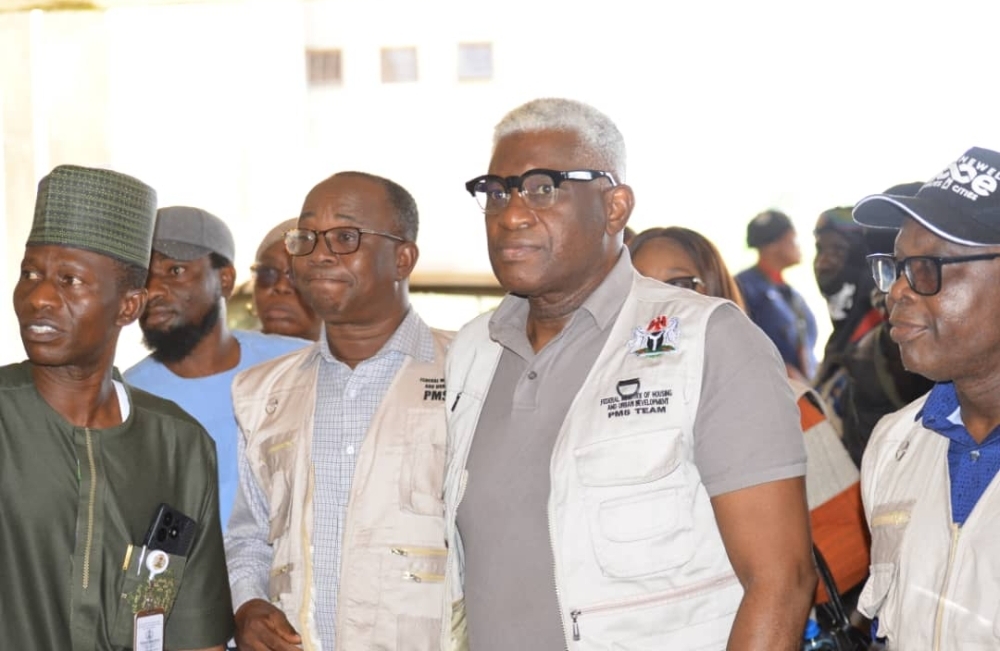
FG Hastens to Provide Better Office Accomodation for Federal Civil Servants in States
* We are enthusiastic, optimistic in providing affordable housing for Nigerians - Belgore
The Permanent Secretary, Federal Ministry of Housing and Urban Development, Dr Shuaib Belgore has stated that the federal government would hasten work to deliver the federal Secretariat, Osogbo, Osun State to enable civil servants have better office accommodations to discharge their duties efficiently.
He spoke in Osogbo, Osun State when he led an inspection team from his ministry on a tour of federal government's projects ongoing in the state.
Dr Belgore noted that, work at the Osogbo Federal Secretariat, has reached an advanced stage of completion, saying that contracts for federal secretariats awarded same time with that of Osun were; Anambra, Bayelsa, Gombe, Nassarawa, and Zamfara states.
Expressing satisfaction with the quality and progress of work at Oshogbo, he assured the contractor that his request for variation would be secured to enable the release of funds needed for its completion.
Earlier, Engr Olakulehin Kabir, the project manager, Golden Construction Company Ltd, the contractors handling the work, told the team that the project has achieved 80 percent completion, and request the ministry to speed up approval for variation and release of funds to enable them deliver.
On the other hand, the Permanent Secretary has also observed appreaciable level of work in the ongoing work contruction of Osogbo Renewed Hope Estate, but charged the contractors to sit up and scale up work, pomising facilitating their payments after meeting their valuation requirements
" Government is enthusiastic and optimistic with this project, and will not hesitate to review and take decision, including termination of contract for non performing contractiors " he emphasised
The Permanent Secretary finally visited the ministry's field office in Osogbo, interacted with the staff, and commended them for their hardwork in facilitating delivery of government's projects in the State
He acknowledged their concern for inadequate professional staff which he explained as a general concern even at the ministry headqarters.
Dr Belgore assured them that the ministry has made its operations easy interms of correspondences with the headquarters by going digital, saying that computers will be provided for field offices to ease their work
Clarification On Uniform Prices Of Housing Units ...
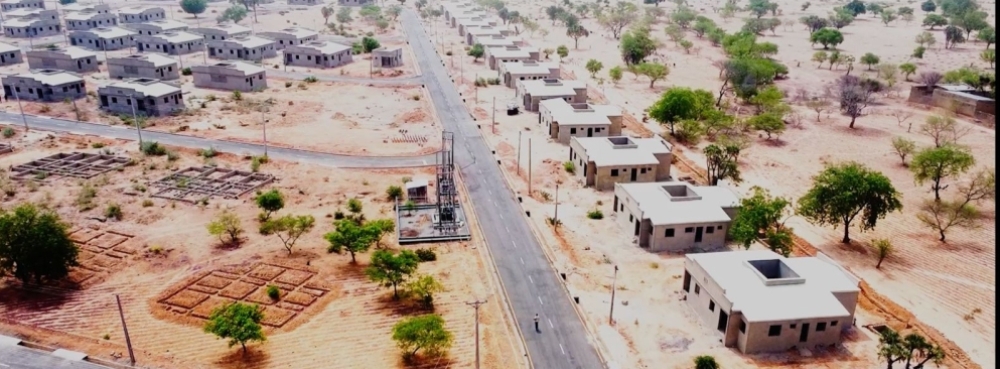
Clarification on Uniform Prices of Housing Units
This is to clarify that the approved prices apply STRICTLY to the Renewed Hope Housing Estates which are funded through the Ministry's budgetary allocation, NOT for the Renewed Hope Cities in Karsana Abuja, Janguza Kano, Ibeju Lekki, Lagos which are being funded through the Public Private Partnership (PPP)
Housing Ministry, NIWA, OSGoF Harmonise Positions For Effective Shoreline...
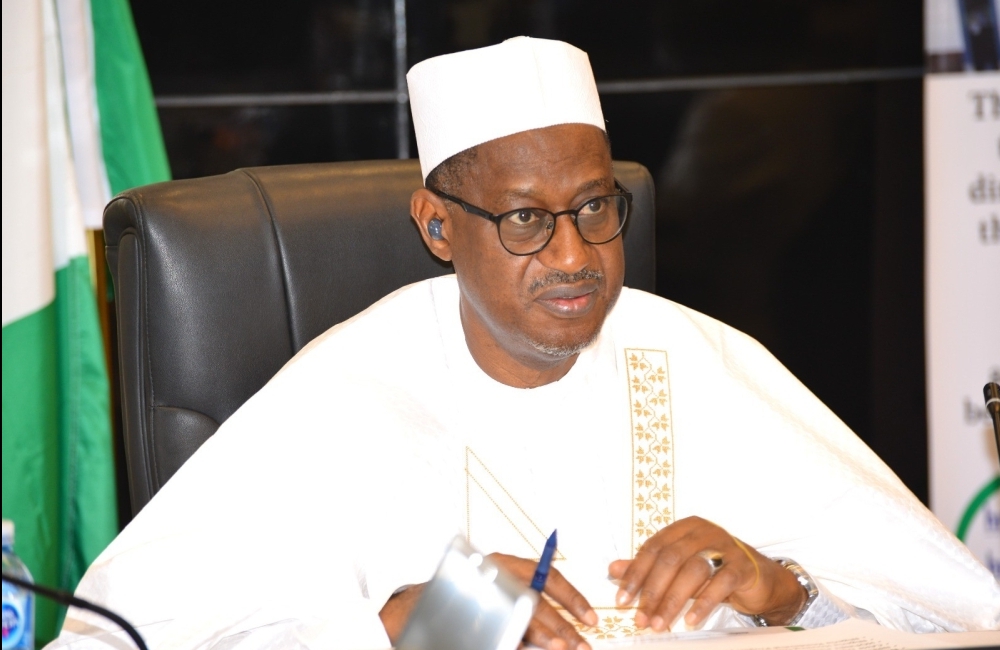
Housing Ministry, NIWA, OSGoF Harmonise Positions for Effective Shoreline Regulations
* Approve Unified Procedure for Shoreline Reclamation, Inland Waterways Management
Ministry of Housing and Urban Development (FMHUD), National Inland Waterways Authority (NIWA) and Office of Surveyor-General of the Federation (OSGoF) have come up with a unified and transparent framework for the effective control and management of national inland waterways and shorelines.
This is part of the resolutions of a meeting of the Technical Inter-Ministerial Committee on the Effective Control and Management of National Inland Waterways and Shorelines.
The committee, comprising the Federal Ministry of Housing and Urban Development (FMHUD), the National Inland Waterways Authority (NIWA) and the Office of the Surveyor-General of the Federation (OSGOF), was set up to review, harmonise and update procedures on shoreline reclamation applications, allocations and collaborative regulatory processes.
Minister of Housing and Urban Development, Arc. Ahmed Musa Dangiwa, the Managing Director of National Inland Waterways Authority (NIWA), and Surveyor-General of the Federation, set up the tripartite inter ministerial technical committe to carry out the assignment.
This is in line with the directives of His Excellency, President Bola Ahmed Tinubu, GCFR, and the aspirations of the Renewed Hope Agenda.
The inter ministerial technical committee meeting focused on strengthening inter-agency collaboration, enhancing transparency and safeguarding the national interest in the administration of Nigeria’s shoreline and inland waterways assets.
Following extensive deliberations, the Committee approved a unified Standard Application Procedure (SAP) to guide all shoreline allocations, reclamation requests and related approvals, in order to ensure uniformity, accountability and transparency.
Under the new framework, all shoreline applications shall commence with the submission of a Letter of Intent to the Federal Ministry of Housing and Urban Development, to be followed by a mandatory joint inspection by FMHUD and NIWA, with the participation of the applicant.
The Committee further resolved that provisional allocations shall be based strictly on survey data jointly validated and charted by surveyors from FMHUD, NIWA and the Office of the Surveyor-General of the Federation, in order to prevent encroachment into navigational channels, avoid overlapping grants and safeguard national spatial integrity.
In addition, all existing shoreline grants-whether new, active, dormant or pending-shall be subjected to immediate review in line with the newly approved Standard Application Procedure. In accordance with earlier Presidential directives, any approval granted in previous years without evidence of payment of statutory assessed fees has been revoked.
For high-sensitivity locations, including Banana Island, the Committee directed that no new approval or extension shall exceed boundaries jointly established by FMHUD, OSGoF and NIWA, adding that strict compliance shall be enforced.
To strengthen process integrity and eliminate delays, the Committee approved a mandatory processing timeline of fourteen (14) days for each stage of the shoreline application and approval process. All Provisional Offer Letters shall henceforth carry clear expiration clauses, while non-compliance by officers or applicants shall attract appropriate administrative and regulatory sanctions.
The resolutions of the Committee supersede all previous communications, directives, circulars and guidelines issued by any Ministry, Department or Agency in respect of shoreline reclamation, allocation, survey validation and related regulatory matters.
The Committee commended the participating agencies for their cooperation and reaffirmed its commitment to a transparent, coordinated and sustainable framework for the management, protection and orderly development of Nigeria’s inland waterways and shorelines.
Nigeria, Saudi Arabia Deepen Housing Development Cooperation At 2026 Real Estate Futu...
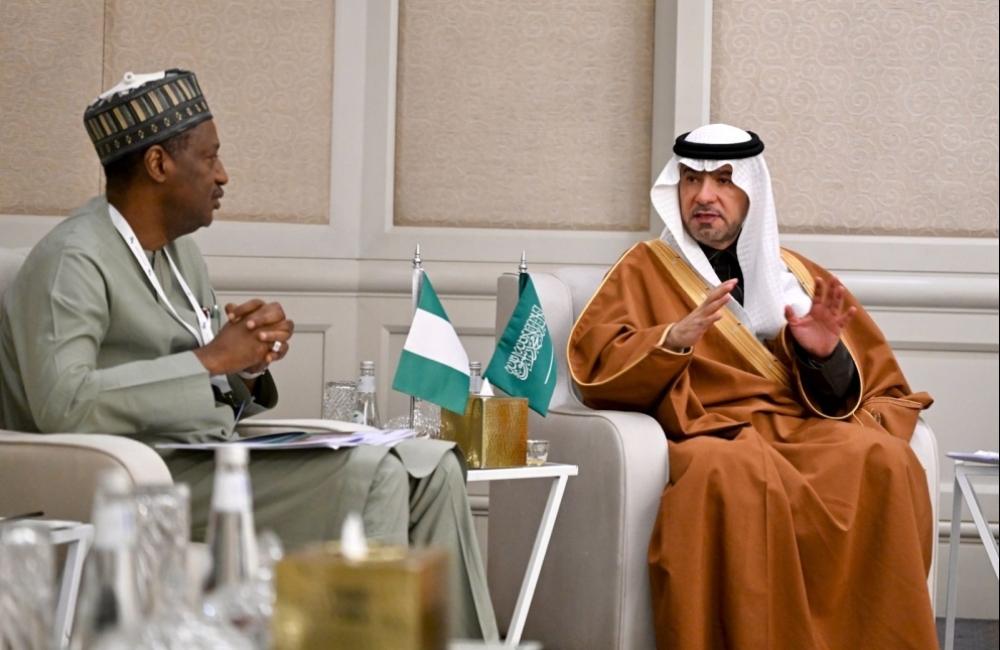
Nigeria, Saudi Arabia Deepen Housing Development Cooperation at 2026 Real Estate Future Forum
Riyadh, Saudi Arabia, 30 January 2026: As part of Nigeria’s investor engagement on the sidelines of the 2026 Real Estate Future Forum (RFF 2026) in Riyadh, the Honourable Minister of Housing and Urban Development, Arc. Ahmed Musa Dangiwa, held a high-level bilateral meeting with the Saudi Arabian Minister of Municipal and Rural Affairs and Housing (MOMRAH), Majed bin Abdullah Al-Hogail, alongside senior officials of the Ministry.
During the meeting, Arc. Dangiwa presented Nigeria’s flagship Renewed Hope Housing Programme, highlighting its scale, structured delivery architecture, and strong alignment with private capital. He also showcased the Federal Government’s Building Materials Manufacturing Hubs initiative, aimed at accelerating local production, reducing construction costs, creating jobs, and strengthening Nigeria’s construction value chain.
“Nigeria is positioning housing not just as a social good, but as a major driver of economic growth, industrialisation, and investment,” Arc. Dangiwa said. “Under the Renewed Hope Housing Programme, we are delivering homes at scale across income segments, supported by clear policies, bankable PPP frameworks, and strong demand fundamentals.”
He added that Nigeria is actively seeking strategic partnerships with credible Saudi institutions and firms.
“We are keen to deepen collaboration with the Kingdom through MOMRAH and to be introduced to reputable Saudi developers, manufacturers, financiers, and technology partners who are ready to enter the Nigerian market. Our Building Materials Manufacturing Hubs, in particular, offer a compelling opportunity for Saudi investors to participate in local production and long-term value creation,” the Minister noted.
In his response, Minister Al-Hogail welcomed Nigeria’s reform-oriented housing agenda and expressed openness to enhanced institutional cooperation between both countries.
“Saudi Arabia recognises the scale of Nigeria’s housing demand and the seriousness of the reforms being undertaken to unlock private investment,” Minister Al-Hogail said. “There are clear areas of synergy between our housing and urban development objectives, especially in large-scale housing delivery, construction technologies, and local manufacturing.”
He further noted that MOMRAH would support engagement with relevant Saudi stakeholders.
“We see value in facilitating connections between Nigerian counterparts and reputable Saudi entities with the experience, capital, and technical capacity to contribute meaningfully to Nigeria’s housing and construction sector,” he added.
The meeting reinforces Nigeria’s strategy of leveraging global platforms such as RFF 2026 to mobilise investment, share best practices, and forge strategic alliances that accelerate housing delivery and industrial development under the Renewed Hope Agenda.
The Federal Ministry of Housing and Urban Development will continue follow-up engagements with MOMRAH and prospective Saudi partners to translate the discussions into concrete investment pathways and project-level collaborations in Nigeria.
Dangiwa Charges Nigerian Delegation To Act As Change Agents, Translate Global Lessons...
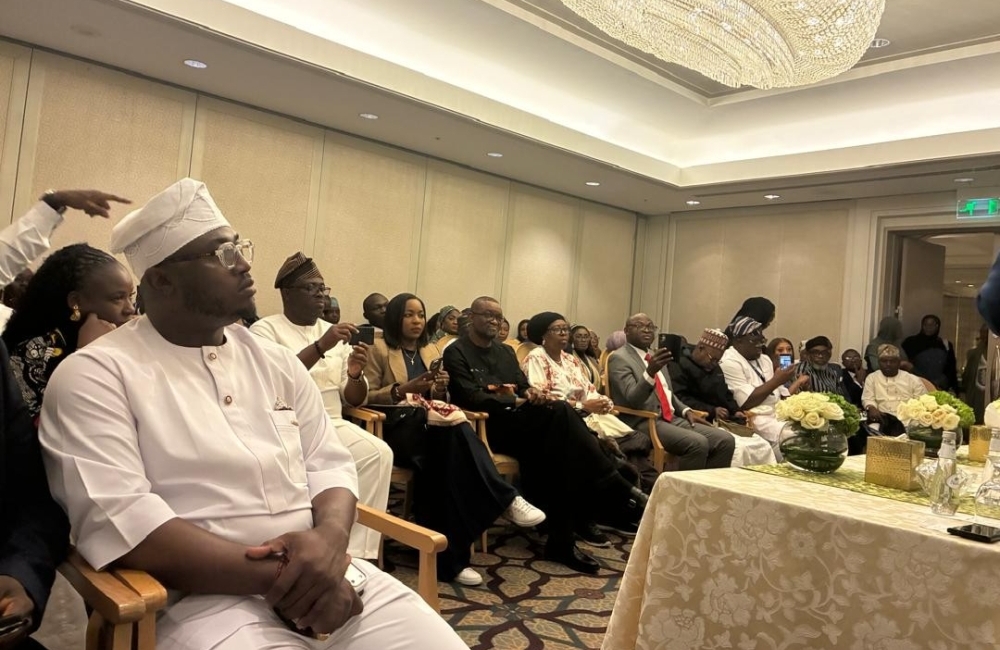
Dangiwa Charges Nigerian Delegation to Act as Change Agents, Translate Global Lessons into State-Level Delivery
27th January 2026 – Riyadh, Saudi Arabia: The Honourable Minister of Housing and Urban Development, Arc. Ahmed Musa Dangiwa, has urged members of the Nigerian delegation attending the Real Estate Future Forum to move beyond observation and actively translate lessons from the Forum into concrete reforms and delivery outcomes at home.
The Minister made the call on Day 2 of the Forum during a meeting with the Nigerian delegation, comprising senior Federal officials, State representatives, and private sector stakeholders, convened to take stock of key learnings midway through the three-day international event.
The Nigerian delegation included the Managing Director of Family Homes Funds Limited, Mr. Abdul Mutallab Mukhtar, representatives from States such as Lagos, Rivers, and Taraba, as well as private sector players, including Pison, real estate developers, and real estate law firms.
According to the Minister, Nigeria’s participation at the Forum is purposeful and strategic. “Our presence here is not symbolic. We are not here to observe from the sidelines. We are here to learn, engage, and reposition Nigeria — and our States — for the future of real estate and urban development,” he stated.
Arc. Dangiwa noted that discussions and case studies at the Forum clearly show that countries attracting serious real estate investment are those that have moved beyond fragmented projects to structured systems, predictable rules, and credible pipelines of bankable developments.
He challenged members of the delegation to reflect critically on what they had learned since the opening day of the Forum, the conversations they had engaged in, and the ideas or models that could reshape housing delivery, land management, and private capital mobilisation in Nigeria.
The Minister emphasised that all delegates must see themselves as change agents, stressing that the real work would begin after returning home. “What we pick up here must translate into better policies, faster approvals, clearer frameworks, and more effective delivery on the ground,” he said.
Highlighting ongoing efforts at the Federal level, Arc. Dangiwa explained that the Ministry is deliberately aligning housing policy, land reforms, housing finance, and Public-Private Partnership (PPP) structures into one coherent national housing delivery system. However, he underscored that States remain the primary arena for implementation.
“Investors are not just asking about Nigeria. They want clarity on specific States — land availability, titling, planning certainty, and execution capacity,” he noted.
He therefore urged State representatives to begin rethinking their investment readiness by reducing friction in land and planning processes, improving certainty, and moving from policy promises to bankable, investable projects.
As the Forum enters its final day, the Minister encouraged the delegation to engage more actively, ask deeper questions, build networks, and learn aggressively, with the goal of returning to Nigeria better informed, better aligned, and more determined to transform housing and urban development delivery nationwide.
FG’s Technical Committee Releases New Housing Data, Pegs Deficit At 15 Million ...

FG’s Technical Committee Releases New Housing Data, Pegs Deficit at 15 Million Units
* Dangiwa Commends Committee for putting Nigeria’s Housing Data issue to rest
Ilorin, Nigeria - 26 January 2026:
The National Housing Data Technical Committee, inaugurated by the Federal Ministry of Housing and Urban Development, has released new housing sector data indicating that Nigeria’s housing deficit for 2025 stood at 14.925 million housing units, underscoring the scale of the country’s housing challenge and the urgent need for data-driven interventions.
The data was presented by Dr. Taofeek Olatinwo, Chairman of the National Housing Data Technical Committee and Director at Nigeria Mortgage Refinance Company (NMRC), during a technical session at the 14th National Council on Lands, Housing and Urban Development, which held in Ilorin from 19th to 23rd January 2026.
According to the presentation, recent analysis conducted under the National Housing Data Programme offers more scientific estimates compared to unverified figures touted over the last few years.
The data, which focused on number of persons per room as a standard for determining deficit, highlights persistent supply gaps driven by rapid population growth, urbanisation pressures, limited access to long-term housing finance, land and title constraints, and inadequate housing supply across several regions.
Housing Minister Arc. Ahmed Musa Dangiwa commended the committee for finally putting the issue of Nigeria’s housing data to rest. “ One of the biggest gaps in our sector has been the absence of reliable, centralized, and actionable housing data. Without data, planning becomes guesswork; investment becomes speculative; and tracking progress becomes difficult,” he said.
Earlier in his presentation, Dr. Olatinwo explained that the deficit estimates were derived from multiple validated data sources, including national household surveys, population and housing census data, and housing adequacy indices developed under international best practice frameworks.
“ Reliable housing data is fundamental to solving Nigeria’s housing problem. Accurate measurement of the housing deficit allows government, lenders, developers, and investors to plan effectively, allocate resources properly, and design sustainable interventions that expand access to affordable housing,” he said.
The presentation forms part of the broader work of the National Housing Data Technical Committee, a multi-agency platform inaugurated by the Federal Ministry of Housing and Urban Development and coordinated by NMRC, in collaboration with National Bureau of Statistics, National Population Commission, Central Bank of Nigeria, Federal Mortgage Bank of Nigeria, Federal Housing Authority, and other key housing sector institutions.
Under the programme, the Committee is leading efforts to establish the National Housing Data Centre, a central platform designed to aggregate, standardise, and disseminate housing and mortgage market data to support policy formulation, housing delivery planning, and long-term housing finance development.
The new deficit figures reaffirm the scale of Nigeria’s housing challenge and strengthen the case for coordinated reforms in land administration, housing supply, infrastructure development, and mortgage finance expansion.
The National Council on Lands, Housing and Urban Development serves as the highest intergovernmental policy forum on housing and urban development in Nigeria, bringing together federal and state governments to deliberate on sector priorities, reforms, and implementation strategies.
Housing Ministry Unveils Unified Housing Delivery Framework Nationwide ...
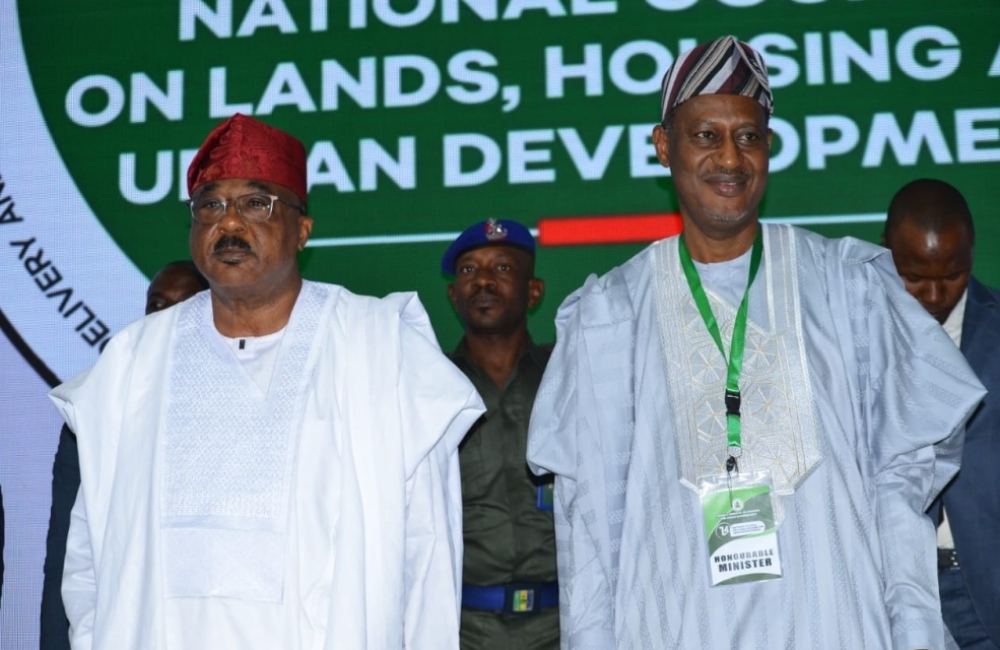
Housing Ministry Unveils Unified Housing Delivery Framework Nationwide
* To Drive One Coherent National Housing Delivery System, Accelerate State-Level Implementation
* Initiative repositioning Nigeria’s housing sector to operate as a single, coordinated national system rather than fragmented interventions - Dangiwa
Ilorin, Kwara State - The Honourable Minister of Housing and Urban Development, Arc. Ahmed Musa Dangiwa, FNIA, FCIB, has announced a new Unified Housing Delivery Framework aimed at strengthening collaboration between the Federal and State Governments to deliver housing at scale and build sustainable cities across Nigeria.
The Minister spoke at the 14th Meeting of the National Council on Lands, Housing and Urban Development in Ilorin, Kwara State, under the theme “Achieving Housing Delivery and Sustainable Cities through Effective Land Management, Urban Renewal, Promotion of Local Building Materials, and Public-Private Partnerships in Nigeria,”
He said the Federal Government is repositioning Nigeria’s housing sector to operate as a single, coordinated national system rather than fragmented interventions.
According to the Minister, the new direction is focused on ensuring that the Ministry and all Federal Housing Institutions (FHIs) function as One Government in delivering results that directly support States and local implementation efforts
" This is to ensure that they operate not in silos, but as One Coherent National Housing Delivery System, working in direct support of State-level implementation,” the Minister stated.
He explained that to translate this coordinated national system into tangible outcomes across the country, the Ministry has developed a Unified Housing Delivery Framework that enables structured State participation, greater scale, and measurable impact
" We have developed a Unified Housing Delivery Framework that enables structured State participation, scale, and impact,” he said.
The Minister further emphasised that the objective of the Framework is to provide clarity and predictable collaboration between the Federal and State Governments in housing delivery.
“The objective of this Framework is clear: to ensure that the Ministry and all Federal Housing Institutions operate as One Government, with complementary and clearly defined roles, while providing State and Local Governments with a predictable, credible framework for collaboration on housing delivery,” he added.
Accordigly, he reaffirmed that the Ministry of Housing remains Nigeria’s designated Coordinating Ministry for housing, land, and urban development, providing policy direction, setting standards, aligning national initiatives, and mobilising private and development finance for housing delivery.
He outlined the Inter-Ministerial Federal delivery and financing architecture driving the Renewed Hope Agenda to nclude;
* Federal Mortgage Bank of Nigeria (FMBN) - delivering single-digit mortgage products, NHF-linked financing, and rent-to-own schemes;
* Federal Housing Authority (FHA) - serving as master developer and PPP structuring partner;
* Nigeria Mortgage Refinance Company (NMRC) – supporting mortgage refinancing and liquidity;
* MOFI Real Estate Investment Fund (MREIF) – mobilising concessional housing capital; and
* Family Homes Funds Limited (FHFL) – expanding access to social and affordable housing for low-income Nigerians.
He noted that the Ministry’s 2026 Strategic Plan prioritises stronger coordination across these institutions to function as a unified national delivery system.
" Under the Framework, States are expected to participate as active counterparts across four flagship Federal programmes, including the Renewed Hope Housing Programme, State-led Social Housing, State Urban Renewal and Inner-City Regeneration, and a State Housing PPP and Investment Platform to develop long-term housing investment pipelines' he explained
The Minister further stressed that the Framework is particularly timely, as many States are experiencing improved fiscal capacity and now require structured ways to partner with the Federal Government and private capital providers for accelerated delivery.
Dangiwa also reiterated that Nigeria’s solutions to housing challenges are known, but success depends on coordination, strong commitment, and disciplined implementation. He highlighted Federal efforts in: land reform through the National Land Titling, Registration and Documentation Programme (Land4Growth); the delivery of over 240 urban renewal and slum upgrade projects nationwide, with more ongoing.
Additionally, he listed the progress made on Building Materials Manufacturing Hubs to reduce construction costs and deepen local production; and growing results from PPP-backed Renewed Hope City projects in Karsana (Abuja), Ibeju-Lekki (Lagos), and Kano, where active house sales are already underway.
The Minister concluded by describing the Unified Framework as a deliberate national shift away from isolated interventions toward a coordinated system where all tiers of government deliver measurable housing outcomes together.
“The Federal Government provides leadership, institutions, and finance. States provide land and subsidies, execution, and local leadership… Together, we deliver homes, renew cities, and unlock growth,” the Minister said.
Chairman, House Committee on Urban Development and Regional Planning, Hon. (Dr) Awaji-Inombek Abiante, raised concerns over unsafe urban farming practices linked to poor land use planning, warning that they pose grave public health risks and undermine sustainable urban development in Nigeria.
“These practices are not accidental; they are the direct consequences of poor land management and the failure to designate safe, planned environments for agriculture within urban and peri-urban areas,” he said.
Deputy Governor of Kwara State, Kayode Alabi, who represented the Governor identified high cost building materials as the most significant factor currently inhibiting efficient housing delivery for average Nigerian, saying that any effort to ensure sustained delivery of houses in Nigeria must necessarily prioritise local content development.
He commended the Federal Government for the housing initiatives, and pushed for improved access to mortgage finance by average households and longtime credit to private investment concerns, stating that public investment alone cannot effectively tackle the nation’s housing gaps.
In a vote of thanks, Minister of State for Housing and Urban Development, Hon. Yusuf Ata, charged participants to translate council resolutions into concrete policies, programmes, and projects that deliver safe buildings, improve housing outcomes, strengthen land administration systems, and build more resilient and inclusive cities.
“The true measure of our success lies in the visible impact on the lives of Nigerians and the sustainability of our urban spaces,” he remarked
Housing Minister Dangiwa Visits, Condoles Emir Of Ilorin Over Loss Of Chief Ima...
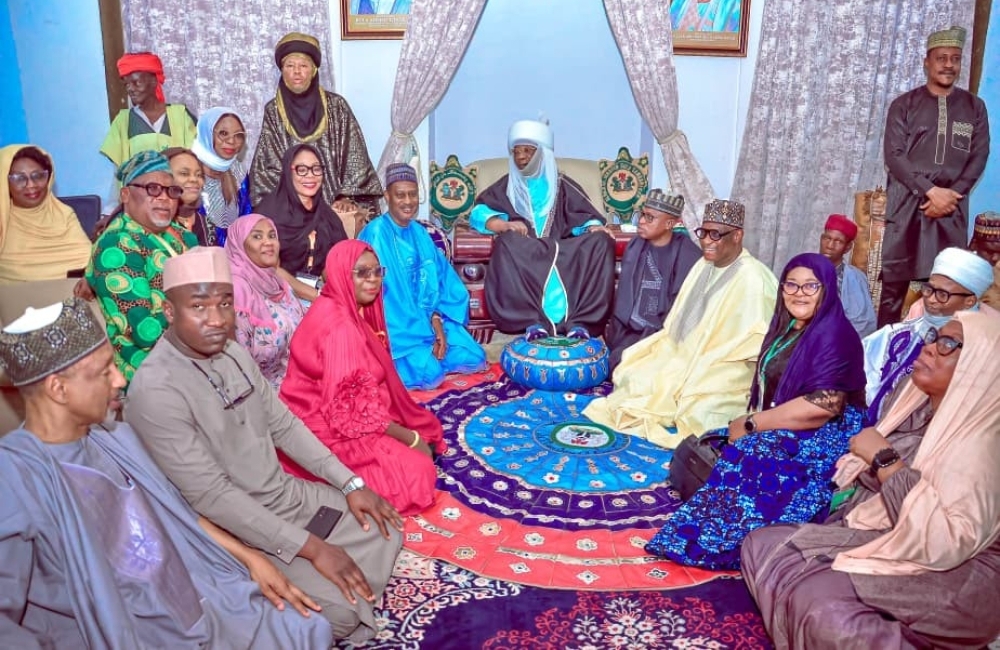
Housing Minister Dangiwa Visits, Condoles Emir of Ilorin Over Loss of Chief Imam
Ilorin, Kwara State - Minister of Housing and Urban Development, Arc. Ahmed Musa Dangiwa, led a high-level delegation of the ministry on a courtesy and condolence visit to the Emir of Ilorin, His Royal Highness, Ibrahim Sulu Gambari, Wednesday, 21st January, 2026 in Ilorin, Kwara State.
The ministry's delegation comprises of Minister of State, Rt. Hon. Yusuf Abdullahi Ata, Permanent Secretary, Dr. Shuaib Belgore, and directors of the ministry.
The Housing Ministry is holding its annual National Council of Housing, Lands, and Urban Development meeting in Ilorin, Kwara state capital.
Minister Ahmed Musa Dangiwa informed the Emir that the visit served a dual purpose: to notify Him about the meeting and to offer condolences to the Ilorin emirate and the entire Kwara State populace on the passing of the late Chief Imam, Mohammad Bashir.
He expressed the ministry's sorrow over the loss and prayed for the repose of the soul of the late Chief Imam.
Earlier Introducing the delegation, Dr. Shuaib Belgore, an indigine of the state informed the Emir that the visit was to seek the His blessings and inform him about the event, which has brought together stakeholders from across the country to discuss key issues in the housing and urban development sector.
The Director, Special Projects of the ministry Tunde Ajayi, thanked the Emir for his support and prayed for the success of the event, stating that Ilorin was chosen to host the event due to its strategic importance, and noting that the city is a key hub for housing and urban development in the region.
The delegation appreciated the warm hospitality and royal reception from the Ilorin Emirate, with Mr Ajayi expressing gratitude on behalf of the minister and the entire delegation.
The visit underscored the importance of collaboration between government agencies and traditional institutions in driving development in Nigeria.
The National Council of Housing, Land, and Urban Development meeting is expected to feature several discussions and deliberations on key issues in the sector, with a view to charting a way forward for sustainable urban development in Nigeria.
REMARKS BY THE PERMANENT SECRETARY, DR. SHUAIB M.L. BELGORE, NPOM, OON, DELIVERED AT ...

REMARKS BY THE PERMANENT SECRETARY, DR. SHUAIB M.L. BELGORE, NPOM, OON, DELIVERED AT THE 14TH MEETING OF THE NATIONAL COUNCIL ON LANDS, HOUSING AND URBAN DEVELOPMENT, HOLDING AT THE KWARA INNOVATION HUB, AHMADU BELLO WAY, G.R.A, ILORIN, KWARA STATE, FROM MONDAY, 19TH TO FRIDAY, 23TH JANUARY, 2026
PROTOCOLS
It is with great pleasure that I deliver these remarks at the Fourteenth (14th) Meeting of the National Council on Lands, Housing and Urban Development. This auspicious gathering brings together key stakeholders, policymakers, professionals, and experts within the built environment to deliberate on issues that are fundamental to housing delivery and sustainable urban development in Nigeria.
2. The theme of this year’s Council Meeting, “Achieving Housing Delivery and Sustainable Cities through Effective Land Management, Urban Renewal, Promotion of Local Building Materials, and Public–Private Partnerships in Nigeria,” is particularly timely and strategic. It underscores the urgent need for innovative, practical, and holistic approaches to addressing Nigeria’s housing deficit while promoting sustainable, resilient, and inclusive cities.
3. The importance of housing cannot be overemphasised. The United Nations recognises housing as the second most basic need of mankind, and its centrality to human dignity, social stability, and economic development is universally acknowledged. In recognition of this, the establishment of the Federal Ministry of Housing and Urban Development—previously subsumed under the Federal Ministry of Works—was a deliberate and strategic intervention aimed at repositioning the sector for greater impact.
4. Furthermore, the Renewed Hope Agenda of the Administration of His Excellency, President Bola Ahmed Tinubu, GCFR, places strong emphasis on revitalising all sectors of the economy to achieve sustained and inclusive growth. As government representatives and stakeholders in the built environment, it is incumbent upon us to align our policies, programmes, and actions with this national vision if we are truly committed to building a prosperous and resilient nation.
5. Under the visionary leadership of the Honourable Minister of Housing and Urban Development, Arc. Ahmed Musa Dangiwa, the Ministry has initiated several flagship reforms that have placed the housing and urban development sector on a progressive trajectory. These initiatives—many of which are captured in the theme of this Council—form the backbone of the Federal Government’s strategy to scale up housing delivery and improve urban livability across the Federation.
6. Distinguished delegates, effective land management, urban renewal, promotion of local building materials, and Public–Private Partnerships have proven to be critical catalysts for sustainable housing delivery. Land, which remains the principal resource in the sector, only becomes a true asset when it is properly titled, registered, digitised, and verifiable. Secure land documentation enhances access to finance, stimulates investment, and unlocks wealth creation.
7. Urban renewal, through the regeneration and modernisation of ageing urban centres, improves livability, optimises land use, and promotes sustainable human settlements. In addition, the growing demands on public resources have made Public–Private Partnerships indispensable in complementing government efforts to scale up housing and infrastructure delivery. The Ministry is also intensifying efforts to deepen industrial capacity through the establishment of local building materials manufacturing hubs, aimed at reducing construction costs, shortening delivery timelines, and creating employment opportunities.
8. Housing, as a vital sector of the economy, transcends the provision of shelter. It encompasses access to safe, secure, habitable, and affordable homes, and remains a critical driver of a productive and stable society. Sound physical planning, efficient land allocation and utilisation, and effective policy formulation and implementation are therefore fundamental to sustainable housing development. The real estate and construction sectors contribute significantly to economic growth through employment generation, investment mobilisation, savings, and improved labour productivity. Moreover, the availability of decent housing directly influences public health, social well-being, and environmental sustainability.
9. Nigeria’s rapid population growth and accelerated urbanisation have resulted in a significant housing deficit, which is further compounded by challenges such as limited access to land, inadequate mortgage financing, high costs of building materials, insufficient infrastructure, weak land documentation systems, and shortages of skilled artisans and craftsmen. In response to these challenges, the Ministry is working assiduously to coordinate and harmonise policies, procedures, and institutional frameworks through sustained collaboration with public and private sector stakeholders.
10. Distinguished participants, achieving sustainable housing delivery and functional cities begins with sound policy formulation, rigorous sectoral reviews, and the implementation of actionable strategies. The National Council on Lands, Housing and Urban Development remains one of the foremost statutory platforms for generating such critical policy recommendations. The resolutions emerging from the technical deliberations of Directors, refined at the level of Permanent Secretaries, and ultimately considered by this Council, will shape the future direction of housing and urban development in Nigeria and contribute meaningfully to national economic growth.
11. I wish to assure this distinguished gathering that the Federal Ministry of Housing and Urban Development, under the leadership of the Honourable Minister, Arc. Ahmed Musa Dangiwa, will continue to provide the necessary policy direction, institutional leadership, and coordination required to achieve our shared objectives in the built environment. I urge all stakeholders to demonstrate similar commitment within their respective jurisdictions and spheres of influence.
12. As we engage with the memoranda presented, I encourage frank, constructive, and solution-oriented deliberations, with a view to adopting policies and strategies that will ensure sustainable, affordable, and inclusive housing delivery at both national and sub-national levels.
13. As we deliberate in the best interest of our dear country, I wish us fruitful discussions and impactful outcomes.
Thank you for your attention, and God bless the Federal Republic of Nigeria.
WELCOME ADDRESS BY THE DIRECTOR, PLANNING, RESEARCH AND STATISTICS AT THE FOURTEENTH ...

WELCOME ADDRESS BY THE DIRECTOR, PLANNING, RESEARCH AND STATISTICS AT THE FOURTEENTH (14TH) MEETING OF THE NATIONAL COUNCIL ON LANDS, HOUSING AND URBAN DEVELOPMENT, HELD IN ILORIN INNOVATION HUB, AHMADU BELLO, G.R.A, ILORIN, KWARA STATE ON 19TH JANUARY, 2026
Protocols.
It is my singular honour and pleasure to warmly welcome you all to the Fourteenth (14th) Meeting of the National Council on Lands, Housing and Urban Development, holding here at the Kwara Innovation Hub, Ilorin, Kwara State. I convey the goodwill and best wishes of the Honourable Minister of Housing and Urban Development, as well as the Management and staff of the Federal Ministry of Housing and Urban Development.
2. This Council Meeting represents the highest policy advisory platform in Nigeria’s housing and urban development sector. Its convening underscores the Federal Government’s commitment to inclusive dialogue, cooperative federalism, and evidence-based policymaking aimed at addressing the nation’s housing and urban development challenges. I therefore extend a special welcome to Honourable Commissioners, Permanent Secretaries, Directors, State Surveyors-General, representatives of professional and regulatory bodies, academia, the military and paramilitary organisations, and all other key stakeholders in the built environment.
3. Distinguished participants, the theme of this year’s Council Meeting—“Achieving Housing Delivery and Sustainable Cities through Effective Land Management, Urban Renewal, Promotion of Local Building Materials, and Public–Private Partnerships in Nigeria” is both timely and strategic. It reflects the urgent need to respond holistically to the pressures of rapid urbanisation, population growth, climate concerns, and the widening housing deficit across the country.
4. Over the next few days, this Council will engage in a carefully structured programme designed to ensure robust technical engagement, policy coherence, and actionable outcomes. The Meeting formally commenced with the arrival and registration of delegates, followed by the Technical Sessions of Directors, which are taking place over two days. These sessions provide the critical foundation for the Council, as Directors deliberate extensively on sectoral issues, review memoranda, assess implementation progress of previous Council decisions, and refine policy proposals for higher-level consideration.
5. This will be followed by the Meeting of Permanent Secretaries, where the outcomes of the Directors’ deliberations will be further examined, harmonised, and strengthened from an administrative and inter-governmental coordination perspective. The climax of the programme will be the Council Meeting proper, to be attended by the Honourable Minister and Honourable Commissioners from across the Federation, where key policy decisions, resolutions, and strategic directions for the housing and urban development sector will be collectively adopted.
6. The thematic focus of this Council has been carefully articulated around eight critical areas, namely: policy formulation and implementation; institutional strengthening; effective land management and administration as a foundation for sustainable housing delivery; national land policy and governance frameworks for inclusive urban growth; promotion of local building materials and technologies; urban renewal and regeneration; public–private partnerships as catalysts for housing and infrastructure delivery; and innovative financing and investment strategies for sustainable housing development. These thematic areas are expected to guide discussions, shape memoranda, and inform the resolutions of the Council.
7. Distinguished colleagues, it is important to reiterate that the National Council is not merely a forum for discussion but a critical instrument for policy direction and implementation. The success of government policies ultimately lies in effective execution, and this responsibility rests significantly on Directors and senior officials at both federal and state levels. As custodians of policy implementation, your technical input, professional judgment, and institutional leadership are essential in translating Council decisions into programmes and actions that deliver tangible benefits and lasting succour to our citizens.
8. The requirement for States and stakeholders to submit memoranda aligned with the theme of the Council, as well as status reports on the implementation of decisions reached at the 13th Council Meeting in Gombe, is therefore central to ensuring continuity, accountability, and measurable progress within the sector. These inputs enrich deliberations and enable the Council to take informed decisions grounded in practical realities.
9. As we engage over the coming days, I encourage all participants to contribute constructively, share experiences and best practices, and propose pragmatic, implementable solutions that align with our institutional mandates and regulatory frameworks. Let our deliberations be guided by a shared commitment to reducing Nigeria’s housing deficit, strengthening land governance, revitalising our cities, and improving the quality of life for all Nigerians.
10. Once again, I warmly welcome you all to Ilorin and to this important Council Meeting. I wish us fruitful deliberations, meaningful engagements, and successful outcomes.
Thank you for your attention, and I wish you a pleasant stay in Kwara State.
FG Sets Out Framework For Maintenance, Preservation Of Public Assets Nationwide...
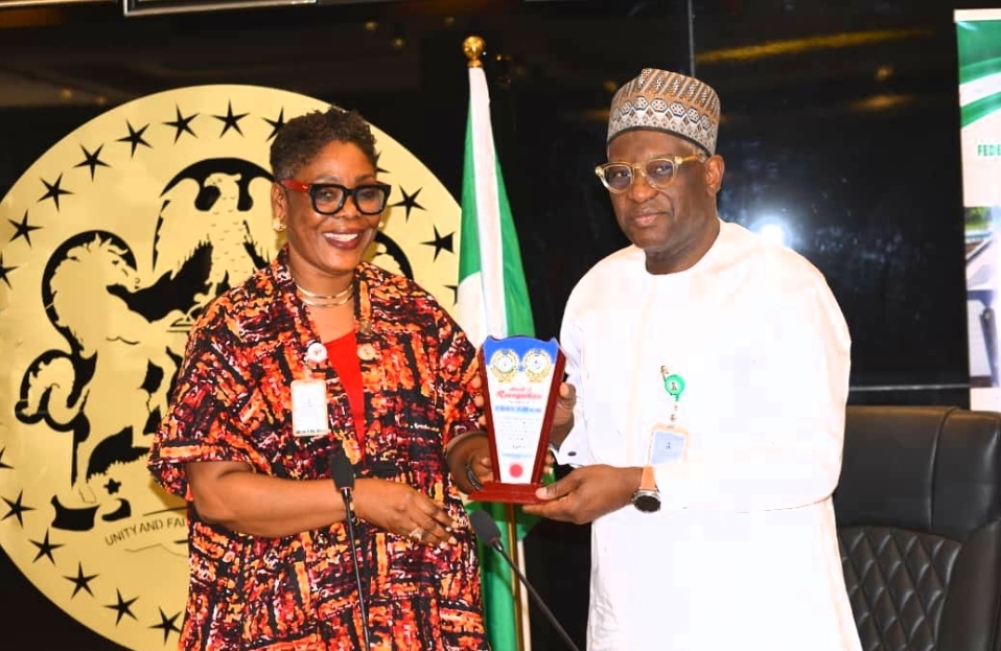
FG Sets Out Framework for Maintenance, Preservation of Public Assets Nationwide
* unveiled innovative Fpam smart card embedded with a QR Code to provide a One - Stop - Shop access to activities
The Federal Government has unveiled a comprehensive framework aimed at strengthening the maintenance and preservation of public assets across the country.
The initiative is being driven by the Federal Ministry of Housing and Urban Development through its Department of Federal Public Assets Maintenance (FPAM), which has developed a framework containing Standard Operating Procedures (SOPs) to ensure effective, uniform, and sustainable maintenance of federal public assets nationwide.
As part of the rollout, the Ministry has commenced engagements with Ministries, Departments and Agencies (MDAs) to facilitate the implementation of the SOPs, providing a harmonised approach to asset maintenance and preservation across the Federal Public Service.
FPAM, a department under the Ministry of Housing and Urban Development, is statutorily responsible for the oversight of maintenance functions of federal government assets. The department was established through Presidential Executive Order No. 11, which was officially gazetted on April 6, 2022.
To ensure seamless implementation of the framework, FPAM has introduced and distributed a set of compliance forms and a comprehensive maintenance manual to MDAs. These documents form part of a certification and oversight process designed to ensure proper documentation, traceability, accountability, and alignment with established maintenance standards and protocols.
Speaking on the initiative, the Director of FPAM, Arc. Chioma Wogu- Ogbonna explained that the objective of the framework is to institutionalise a proactive maintenance culture within MDAs, prevent premature deterioration of government assets, and promote value-for-money through structured and standardised maintenance practices.
She noted that the SOPs and compliance tools were developed to reflect measurable outcomes, quality assurance, and consistency in asset management across government institutions.
Arc. Chioma appreciaed the Permanent Secretary of the Federal Ministry of Housing and Urban Development, Dr. Shuaib Belgore for his unwavering leadership and institutional support, describing the initiative as a major breakthrough in the Federal Government’s effort to safeguard public assets nationwide.
According to the FPAM Director, the support of the Permanent Secretary has been instrumental in translating the department’s mandate into actionable policies and operational frameworks.
In his remarks, Dr. Belgore reaffirmed the Ministry’s commitment to strengthening asset maintenance culture within the public service, stressing that effective preservation of public assets is critical to sustainability, service delivery, and prudent management of public resources.
He emphasised the need for Permanent Secretaries across MDAs to work closely with FPAM and ensure that agencies under their supervision align with the department’s regulatory and operational mandates as the central instrument for public assets preservation.
To further drive awareness and operational efficiency, FPAM has also unveiled innovative tools, including a smart card embedded with a QR Code, which provides instant access to the department’s activities and mandate on an internet-based platform. In addition, the department has rebranded its operational bus with the FPAM logo to support outreach, monitoring, and engagement activities nationwide.
In recognition of his leadership and support, the FPAM Department presented an Award Plaque to the Permanent Secretary, Dr. Shuaib Belgore, underscoring his role in advancing the maintenance framework and positioning FPAM to unlock its vast untapped potential.
The Ministry reiterated that the successful implementation of the framework would ensure the longevity of government assets, promote accountability, and entrench a sustainable maintenance culture for national development.
Housing Ministry Advances Its Digital Transition, Distributes Laptops To Directors&nb...
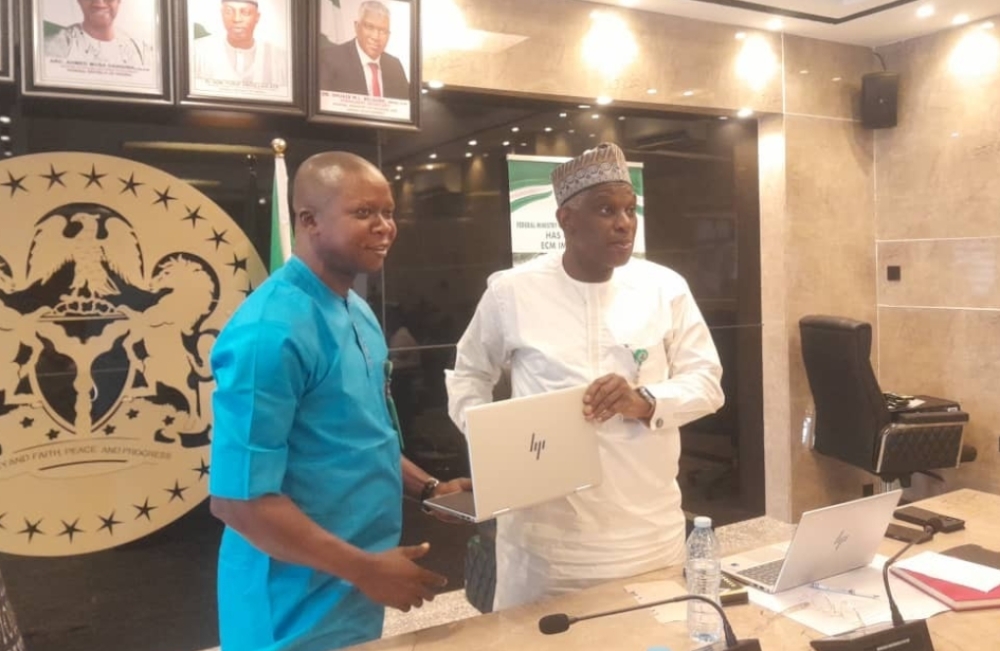
Housing Ministry Advances Its Digital Transition, Distributes Laptops to Directors
* It's our efforts to boost service delivery, compliance with OHCSF reforms - Belgore
In a renewed push for public service reform and a paperless government, the Federal Ministry of Housing and Urban Development has rolled out laptops to Directors to fast-track full deployment of its Enterprise Content Management (ECM) system.
The Permanent Secretary, Dr. Shuaib Belgore, handed over 30 units of Core i7 laptops systems to all Directors/Heads of Departments in the Ministy during Top Management meeting at the Ministry’s Headquarters in Abuja.
The distribution forms part of the Ministry’s commitment to a continuous digitization of official workflow, enhancing productivity, and ensuring seamless integration of the ECM platform across all departments.
Speaking during the meeting, Dr. Belgore emphasised that the initiative was in fulfillment of the earlier promise to provide the necessary digital working tools to enable Directors work efficiently both on-premise and remotely.
“The laptops are designed to empower Directors to effectively carry out their official duties anytime, anywhere, in line with the Ministry’s ECM deployment and the directive of the Head of the Civil Service of the Federation (HCSF) on digitalisation of MDAs operations,” Dr. Belgore said.
The Permanent Secretary described the distribution of the laptops as an effort by the ministry to boost service delivery and compliance with the OHCSF reforms and strategy initiatives.
Configured by the Ministry’s ICT Department, the laptops come pre-installed with office suite applications and smart security solutions to support workflow automation and secure access to the ECM system.
Dr. Belgore also noted that this digital upgrade will significantly improve turnaround time, and enhance transparency and accountability in all official activities.
Earlier in his remarks, Dr. Amiolemen Marcus, Head of the ICT Department, disclosed that 90 desktop computer systems, similarly configured, will be distributed to departments and offices across the Ministry before the end of the week to further strengthen the ECM rollout.
Recalled that the ministry officially went live on the ECM platform on September 30th, 2025, marking a significant step forward in its digital transformation journey, and placing it among the pacesetters in the public service digitalisation initiative.
Housing Ministry Advances Efforts To Institutionalise Housing Data, Reveals 15.2 Mill...
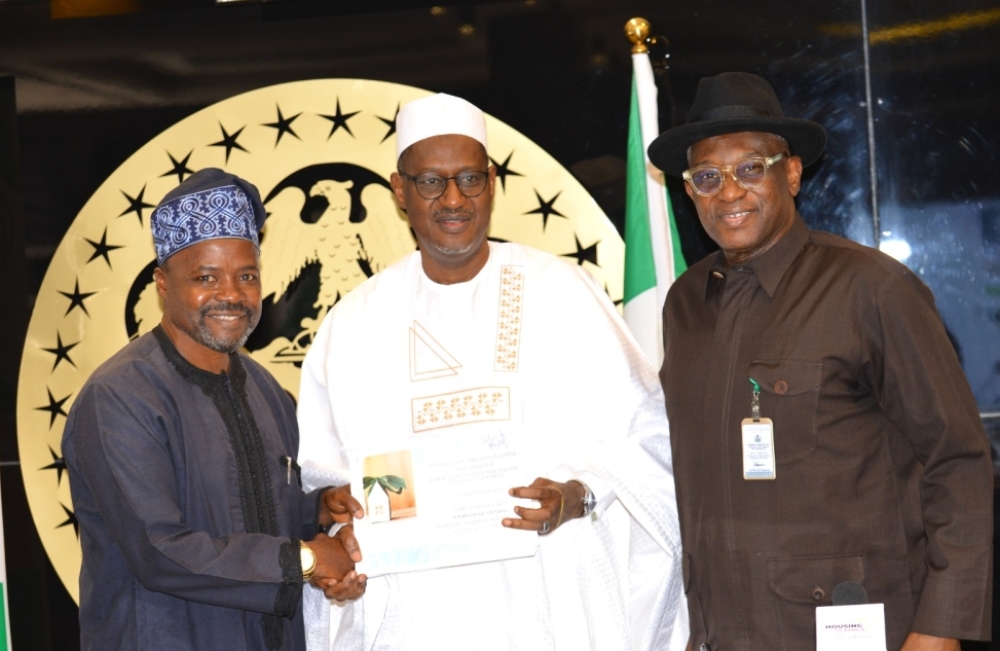
Housing Ministry Advances Efforts to Institutionalise Housing Data, Reveals 15.2 Million Inadequate Units
The Federal Ministry of Housing and Urban Development has disclosed that approximately 15.2 million housing units across Nigeria are structurally inadequate, highlighting a critical dimension of the country’s housing challenge beyond the construction of new homes.
The disclosure was made by the Honourable Minister of Housing and Urban Development, Arc. Ahmed Musa Dangiwa, during the presentation of the National Housing Data Initiative (NHD) by the National Housing Data Technical Committee at the Ministry’s Conference Room in Abuja.
The Committee was established in August 2024 to develop a harmonised national framework for housing data to support evidence-based housing policy, planning, and investment.
According to the Minister, the findings confirm that Nigeria’s housing challenge is both quantitative and qualitative, with national housing deficit estimates varying depending on data sources and methodological approaches.
“Beyond headline deficit figures, the application of harmonised and internationally recognised methodologies now allows us to state with clarity and confidence that Nigeria currently faces a housing inadequacy problem affecting approximately 15.2 million housing units nationwide,” the Minister said.
The Minister explained that the 15.2 million inadequate housing units are homes that exist physically but fall below acceptable standards of safety, habitability, access to basic services, infrastructure, and durability.
He noted that the findings were derived from the application of the Household Crowding Index, the Adequate Housing Index, and a Composite Index Methodology, supported by datasets from the National Population Commission (NPC), the National Bureau of Statistics (NBS), the Central Bank of Nigeria (CBN), and other housing sector institutions.
“These findings clearly demonstrate that Nigeria’s housing challenge is not only about building new houses,” the Minister stated, “but equally about upgrading existing housing stock, regenerating deteriorated neighbourhoods, improving basic services and infrastructure, and ensuring dignity, safety, and adequacy in housing outcomes.”
While highlighting the importance of the findings, the Minister emphasised that housing inadequacy represents only one dimension of Nigeria’s broader housing deficit.
He stressed the need to sustain the same level of analytical clarity across other critical areas, including absolute housing shortages, affordability gaps, access to land and secure tenure, availability and cost of housing finance, infrastructure and service deficits, regional and urban–rural disparities, as well as population growth rates, urbanisation trends, household formation patterns, and demographic projections.
According to him, a holistic examination of these dimensions is necessary to accurately assess current needs, anticipate future demand, and design sustainable and responsive housing policies.
The Minister formally accepted the presentation and report of the National Housing Data Initiative on behalf of the Ministry, describing it as “a major intellectual, technical, and institutional milestone” in Nigeria’s housing and urban development reform journey.
He further disclosed that the Federal Government has commenced steps to institutionalise housing data through the establishment of a National Housing Data Centre, which will be domiciled within the Ministry in the short term and institutionalised through a Special Purpose Vehicle or statutory framework in the longer term.
According to the Minister, the proposed Centre will create a permanent national institution capable of supporting housing policy formulation, investment decisions, access to housing finance, and housing delivery at scale.
The Honourable Minister commended the National Housing Data Technical Committee, led by Mr. Taofeeq Olatinwo, and acknowledged the contributions of participating institutions, including FMHUD, NMRC, NBS, NPC, CBN, FMBN, FHA, Family Homes Funds Limited, REDAN, AHCN, MBAN, HDAN, and other industry experts.
He announced that all Committee members and participating institutions will be issued formal Letters of Participation and Recognition by the Ministry in acknowledgement of their contributions to the report and its outcomes.
The Minister noted that the National Housing Data Initiative aligns fully with the Renewed Hope Agenda of His Excellency, President Bola Ahmed Tinubu, GCFR, and strengthens government’s capacity to support affordable and social housing delivery, deepen access to housing finance, improve investor confidence, stabilise housing markets, and monitor outcomes with credibility and accountability.
Describing the presentation as a turning point in Nigeria’s housing reform journey, the Minister stressed that data is no longer peripheral to housing delivery but central to it.
“With the National Housing Data Initiative, Nigeria is better positioned to plan more accurately, invest more confidently, and deliver housing more effectively and equitably for Nigerians,” he said.
In his remarks, the Permanent Secretary, Dr Shuab Belgore, said the report of the National Housing Data Committee would be published and circulated to all relevant agencies to formally legitimise the work carried out by the committee.
He also directed the Department of Planning, Research and Statistics (PRS) to follow up on the establishment of the Data Centre in the Ministry, as earlier recommended in the report, with a mandate to ensure it is ready by mid January, 2026.
On his part, the Chairman of the National Housing Data Technical Committee, Taofeeq Olatinwo, noted that the housing deficit research involved the participation of various organisations, financial institutions, and industry experts, adding that the committee collaborated with the World Bank to ensure consistency and standardisation of the data.
He explained the multidimensional index used in assessing key aspects of housing quality, including access to water, electricity, sanitation, and other basic services.
He revealed that, based on the Adequate Housing Index, Nigeria’s housing deficit stands at 15.2 million units as of 2025, with Kano State recording the highest deficit and Bayelsa State the lowest.
Namibian Minister Commends Nigeria’s Renewed Hope Housing Programme, Applauds N...

Namibian Minister Commends Nigeria’s Renewed Hope Housing Programme, Applauds National Housing Fund (NHF) Scheme
The Minister of Urban and Rural Development of the Republic of Namibia, Honourable Sankwasa James Sankwasa, has commended Nigeria’s Renewed Hope Housing Programme and applauded the National Housing Fund (NHF) Scheme, describing them as impactful policy instruments for expanding affordable housing and deepening homeownership.
Hon. Sankwasa made these remarks during a courtesy visit to the Honourable Minister of Housing and Urban Development, Arc. Ahmed Musa Dangiwa, at his office in Abuja on Friday, December 12, 2025.
The Namibian Minister, whose portfolio oversees regional and local governance as well as housing development, noted that his Ministry plays a central role in tackling housing deficits and improving living conditions across Namibia.
He informed his host that he was in Nigeria to participate in the 2025 Africa Housing Awards and considered it important to engage the Ministry to exchange ideas and share experiences on affordable housing delivery.
Hon. Sankwasa explained that Namibia’s housing challenge is largely driven by the rapid growth of informal settlements. He stated that the Namibian Government has adopted a multi-pronged approach to address this, including free land titling for low-income citizens, structured identification of development zones, and the cultivation of strong partnerships with development partners.
According to him, development partners are deliberately integrated into Namibia’s national housing framework and budgetary planning, noting that while partners support housing construction, the Government of the Republic of Namibia assumes responsibility for the provision of critical infrastructure to make such developments sustainable and liveable.
Responding, the Honourable Minister of Housing and Urban Development, Arc. Ahmed Musa Dangiwa, welcomed the Namibian delegation and reaffirmed Nigeria’s commitment to South-South cooperation and knowledge-sharing in the housing and urban development sector.
Arc. Dangiwa highlighted the Renewed Hope Housing Programme as a flagship intervention of President Bola Ahmed Tinubu, GCFR, designed to shift housing delivery in Nigeria from isolated projects to a coordinated national programme spanning Renewed Hope Cities, Renewed Hope Estates, Social Housing, urban renewal, and slum upgrading.
The Minister also underscored the strategic importance of the National Housing Fund (NHF) as a long-standing and sustainable housing finance mechanism that pools long-term funds to support affordable mortgages for Nigerian workers, while strengthening institutional delivery through agencies such as the Federal Mortgage Bank of Nigeria.
He assured the Namibian Minister of the Ministry’s readiness to share technical knowledge, policy frameworks, and implementation experience, noting that Africa’s housing challenge requires home-grown solutions, regional collaboration, and strong public-private partnerships.
Falana Applauds FG's National Land Titling, Registration And Documentation Programme&...
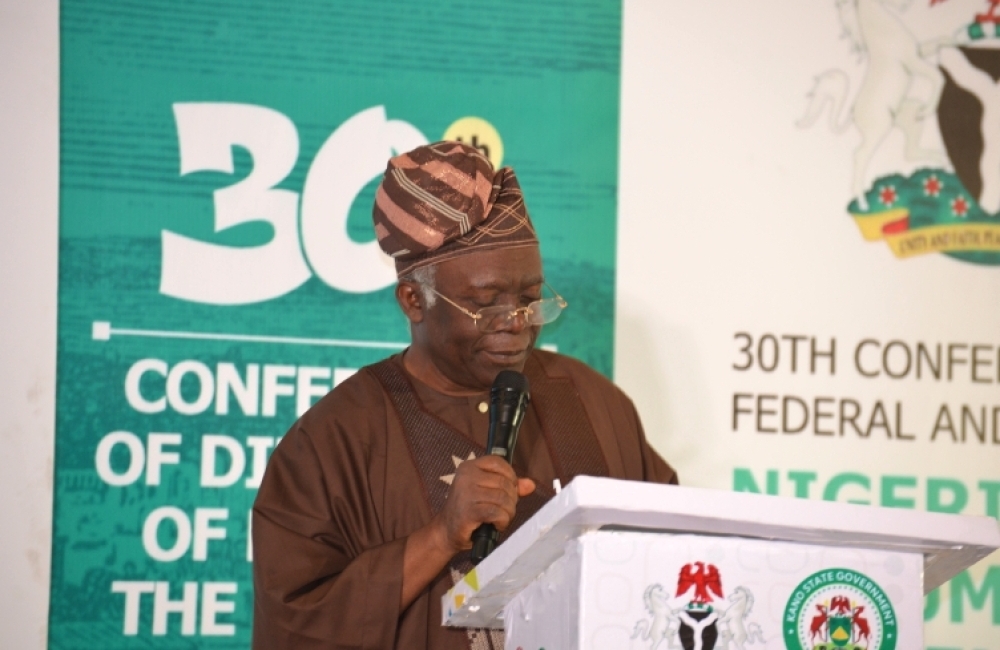
Falana Applauds FG's National Land Titling, Registration and Documentation Programme Kano, Nigeria:
Human rights advocate and Senior Advocate of Nigeria (SAN), Mr. Femi Falana, has commended the Federal Government for the implementation of the Nigeria Land Titling, Registration and Documentation Programme (a.k.a Land4Growth), describing it as a bold, progressive and transformative intervention that will unlock economic growth, enforce property rights and protect citizens from exploitation.
Falana delivered his remarks today on Day 2 of the ongoing 30th Conference of Directors of Lands, holding in Kano, where he presented a detailed position paper on the reform of Nigeria’s land administration system.
He applauded the Federal Ministry of Housing and Urban Development for championing a programme that targets increasing Nigeria’s formal land registration from less than 10% to 50% within a decade, in partnership with the World Bank.
According to him, a properly executed nationwide land titling programme will mark the beginning of a new wealth creation era for millions of Nigerians and put an end to decades of informal transactions, land disputes, corruption and the harassment of citizens by illicit land operators and omo onile cartels.
He stressed that over 90% of Nigerian land assets currently exist as ‘dead capital’, a condition that undermines mortgage access, hinders housing development, and limits economic participation.
Falana, however, urged the government to ensure that the Land4Growth remains inclusive, accessible and free of financial burden for citizens, especially vulnerable households in rural communities.
Accordingly, he called for a financing structure that places the responsibility of titling costs squarely on the government while ensuring legal enforcement and transparency at every stage of implementation.
He further noted that the success of the programme must go beyond digitization and urban pilots, warning that without parallel reforms in enforcement of the Land Use Act and protection of customary rights, digitization could simply “modernize the old inequities.”
He also advocated a stronger linkage between land titling and financing mechanisms under existing laws like the National Housing Fund and Federal Mortgage Bank frameworks, so that formal titles translate directly into real access to mortgages and mass housing delivery.
The Senior Advocate, concluded with a strong call to action to stakeholders across government institutions, financial institutions, developers, civil society and youth to treat the Land4Growth as a national development imperative, not just a technical exercise.
“ No country can develop without proper land documentation,” he declared, urging stakeholders to seize the moment to restructure Nigeria’s land sector into a transparent, equitable and economically empowering system for all citizens.
FG Hastens To Provide Better Office Accomodation For Federal Civil Servants In States...
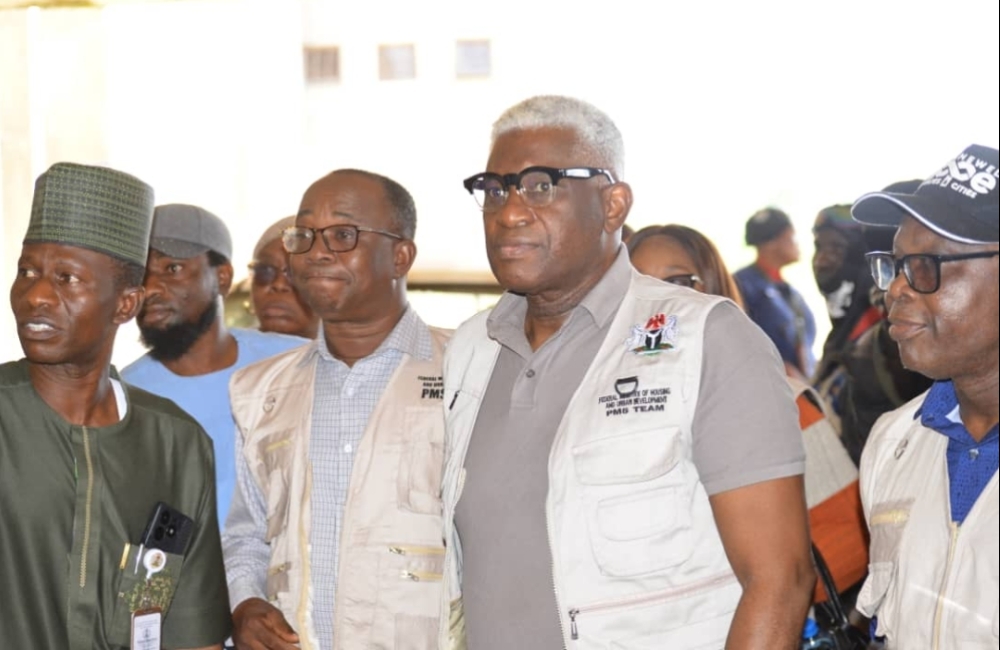
FG Hastens to Provide Better Office Accomodation for Federal Civil Servants in States
* We are enthusiastic, optimistic in providing affordable housing for Nigerians - Belgore
The Permanent Secretary, Federal Ministry of Housing and Urban Development, Dr Shuaib Belgore has stated that the federal government would hasten work to deliver the federal Secretariat, Osogbo, Osun State to enable civil servants have better office accommodations to discharge their duties efficiently.
He spoke in Osogbo, Osun State when he led an inspection team from his ministry on a tour of federal government's projects ongoing in the state.
Dr Belgore noted that, work at the Osogbo Federal Secretariat, has reached an advanced stage of completion, saying that contracts for federal secretariats awarded same time with that of Osun were; Anambra, Bayelsa, Gombe, Nassarawa, and Zamfara states.
Expressing satisfaction with the quality and progress of work at Oshogbo, he assured the contractor that his request for variation would be secured to enable the release of funds needed for its completion.
Earlier, Engr Olakulehin Kabir, the project manager, Golden Construction Company Ltd, the contractors handling the work, told the team that the project has achieved 80 percent completion, and request the ministry to speed up approval for variation and release of funds to enable them deliver.
On the other hand, the Permanent Secretary has also observed appreaciable level of work in the ongoing work contruction of Osogbo Renewed Hope Estate, but charged the contractors to sit up and scale up work, pomising facilitating their payments after meeting their valuation requirements
" Government is enthusiastic and optimistic with this project, and will not hesitate to review and take decision, including termination of contract for non performing contractiors " he emphasised
The Permanent Secretary finally visited the ministry's field office in Osogbo, interacted with the staff, and commended them for their hardwork in facilitating delivery of government's projects in the State
He acknowledged their concern for inadequate professional staff which he explained as a general concern even at the ministry headqarters.
Dr Belgore assured them that the ministry has made its operations easy interms of correspondences with the headquarters by going digital, saying that computers will be provided for field offices to ease their work
Housing Ministry Endorses KTNN’s Nationwide Renewed Hope Homeownership Campaign...
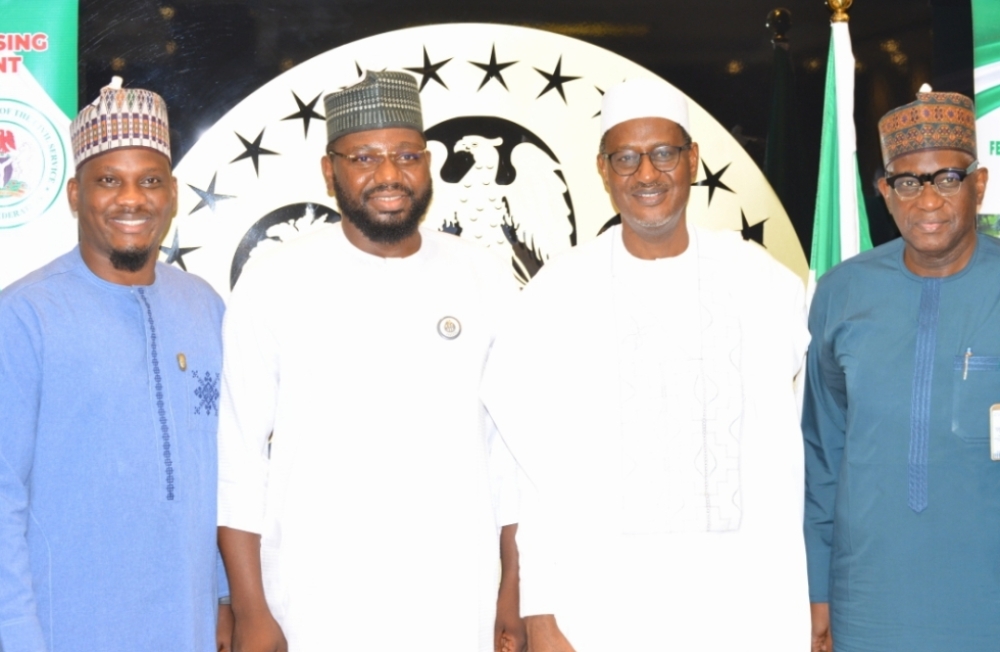
Housing Ministry Endorses KTNN’s Nationwide Renewed Hope Homeownership Campaign.
• campaign to compliment Ministry’s ongoing housing sector Reforms - Dangiwa
The Federal Ministry of Housing and Urban Development has expressed support to a nationwide campaign on Renewed Hope Homeownership and Housing Development presented by the KnowThis Nigeria Network (KTNN)
The decision was the outcome of a meeting between the ministry and the KTNN's team led by its Project Director, Engr. Robert Ahen Chenge to discuss the partnership for the campaign.
Know This Nigeria Network (KTNN) is a civic organization dedicated to bridging knowledge gaps and promoting citizen engagement in national development.
The campaign, an initiative of the KTNN, is designed to bridge the gap between citizens, state governments and housing institutions in Nigeria’s housing reform initiatives. It comprises six regional housing advisory Executive Sessions for Governors, Commissioners of Housing, Land and Urban Development, CEOs of States' Housing Corporations, Legislators, and Private sector. to serve as direct engagement platforms for the leadership of the Ministry, its agencies, and development partners.
The initiative further aims at interfacing with States and aligning housing plans, implementing land reforms, unlocking dead capital, and enabling access to federal and international funding to expand affordable housing delivery.
On the other hand, the Campaign will take the message directly to citizens through State-by-State Homeownership Seminars. These seminars will be hybrid — physical and virtual — to reach every demographic group. Civil servants, artisans, entrepreneurs, professionals, and youth groups will all learn directly from FMHUD, FMBN, FHA, FHFL, NMRC, MREIF, and InfraCredit.
In his remarks, Minister of Housing and Urban Development, Arc. Ahmed Musa Dangiwa praised the effort of the KTNN to translate housing reforms into a nationwide movement that connects policy with people, emphasizing on the importance of making housing reforms accessible to citizens, especially those at the grassroots.
“Many States are still not fully aware of the federal and international housing windows available to them and many citizens still don’t know where to start or how to access affordable housing opportunities”, he said.
“Having gone through the earlier submissions and presentation from KTNN, I am persuaded to endorse the principles and objectives of the Renewed Hope National Homeownership and Housing Development Campaign. The goals of deepening citizen awareness, strengthening State–Federal collaboration, and institutionalising continuity in housing reforms are fully consistent with our Ministry’s priorities under the Renewed Hope Agenda” Dangiwa noted.
He appreciated the timely and strategic nature of the campaign, saying that it complemented ongoing efforts of the Ministry through the Renewed Hope Housing Programme, the Renewed Hope Social Housing Programme, the Land 4growth reforms, among others, designed to make housing delivery more coordinated, transparent, and inclusive.
Minister Dangiwa acknowledged the KTNN’s proposals to institutionalise housing knowledge through the establishment of States' Housing Reform Offices (SHROs) and a National Housing Reform Office (NHRO) as part of the Campaign, noting however that the Ministry will review the specifics to see how they fit into the Renewed Hope Housing Delivery Strategy in line with the need to that they would complement the Ministry’s existing Department of Reform Coordination and Service Improvement to ensure continuity and knowledge retention across political transitions.
“What I see here is not duplication, but an opportunity for complementarity, where private sector-driven support structures like the NHRO and SHROs can work alongside our existing frameworks to deepen reform implementation and accelerate results”, he explained.
Accordingly, Dangiwa lauded KTNN’s push to seek partnerships of Development Finance Institutions (DFIs) such as the World Bank, Shelter Afrique Development Bank, IFC EDGE, and UN-Habitat, noting that the proposal for a co-funding with the DFI’s was consistent with the Ministy’s approach of building sustainable, blended-finance solutions.
He also appreciated KTNN’s plan to produce practical tools like the State Homeownership and Housing Development Advisory Booklet, the Renewed Hope Homeownership Guide, the video infomercials, and the website and digital engagement platform, to help simplify communication, expand public understanding, and build trust between government and citizens.
The Minister directed the Permanent Secretary to constitute a technical review team comprising relevant departments and agencies like the Federal Mortgage Bank of Nigeria (FMBN), Federal Housing Authority (FHA), Family Homes Funds Limited (FHFL), Nigeria Mortgage Refinance Company (NMRC), and the Reform Coordination Department of the Ministry, to collaborate with KTNN in finalizing partnership modalities.
He further assured the KTNN team of the Ministry’s openness to ideas, partnerships, and innovations that help achieve shared goals.
“The Renewed Hope vision is not just a government slogan, it is a national call to action. It belongs to every Nigerian who believes that change is possible when citizens and institutions work together”, Dangiwa said.
In his presentation, the Project Director KTNN, Engr. Robert Ahen Chenge, noted that the Renewed Hope National Homeownership and Housing Development Campaign, was a movement that seeks to bring together all federal and international housing institutions to move forward the agenda of President Ahmed Bola Tinubu's administration in the housing sector.
He explained that the campaign which is designed to bridge gaps between policy and people, federal programs as well as state level efforts, and institutional knowledge with citizen access, would be a hybrid campaign, both physically and online, to ensure broad participation and engagement.
Engr. Chenge further outlined three key gaps the campaign is designed to close to include: lack of understanding of federal reforms, underutilization of federal support institutions, and low awareness of federal housing initiatives.
He said the Campaign also aims to train, certify, and deploy Homeownership Specialists in every State to guide citizens through mortgage applications, housing registration, and homeownership processes, with counterpart funding structure involving government, Development Finance Institutions (DFIs), and the private sector to ensure sustainability.
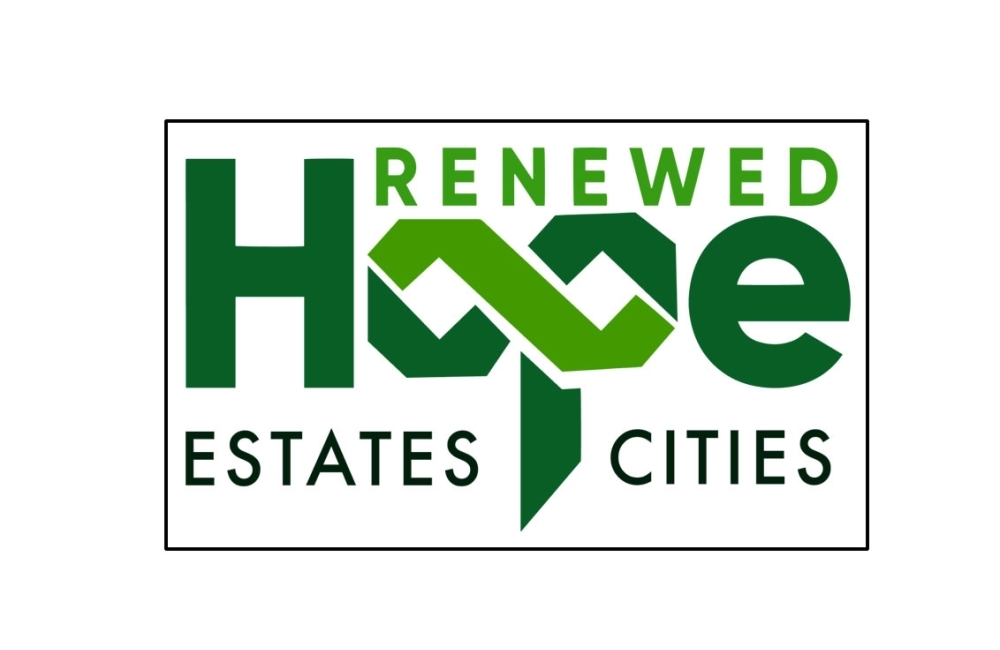
PHOTO NEWS
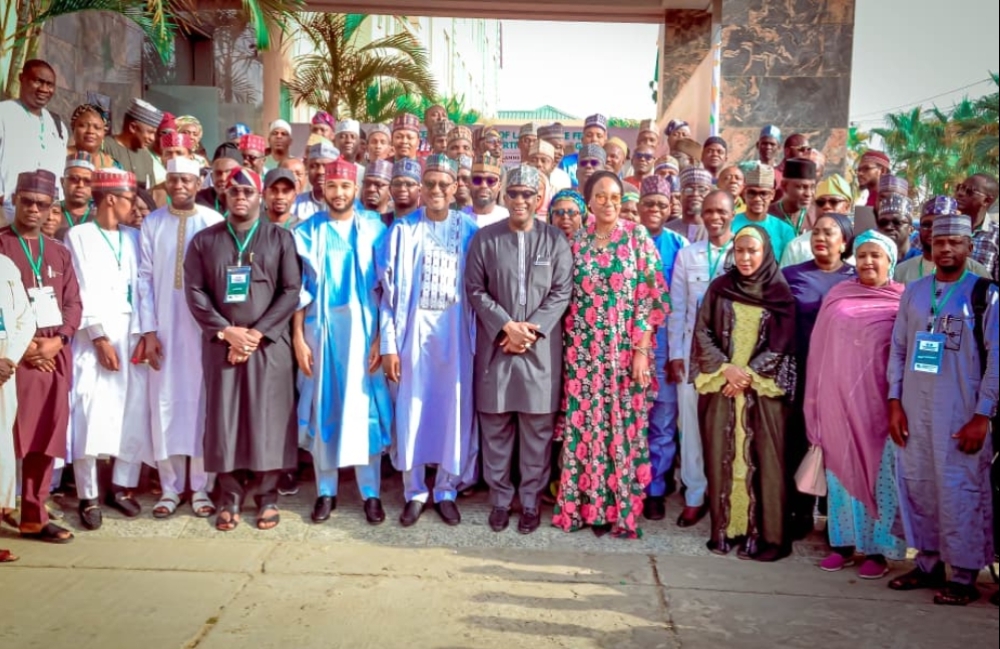
GROUP PICTURE OF DELEGATES/PARTICIPANTS OF THE 30TH NATIONAL CONFERENCE OF DIRECTORS OF LANDS IN THE FEDERAL AND STATES MINISTRIES, DEPARTMENTS AND AGENCIES, WHICH WAS HELD AT BRISTOL HOTEL, KANO , 25TH & 26TH, NOVEMBER, 2025.
Group picture of Delegates/Participants of the 30th National Conference of Directors of Lands in the Federal and States Ministries, Departments and Agencies, which was held at Bristol Hotel, Kano , 25th & 26th, November, 2025.
PHOTO NEWS
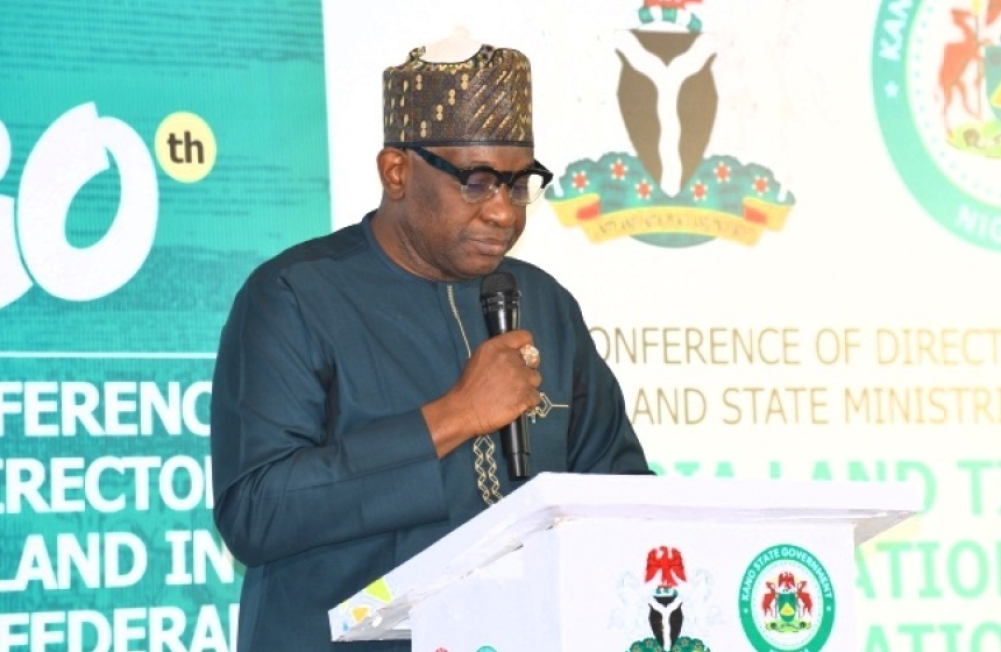
OPENING OF THE 30TH CONFERENCE OF DIRECTORS OF LANDS IN THE FEDERAL AND STATES MINISTRIES, DEPARTMENTS AND AGENCIES IN KANO, NOVEMBER 25TH, 2025
Permanent Secretary of Federal Ministry of Housing and Urban Development, Dr. Shaiub Belgore










